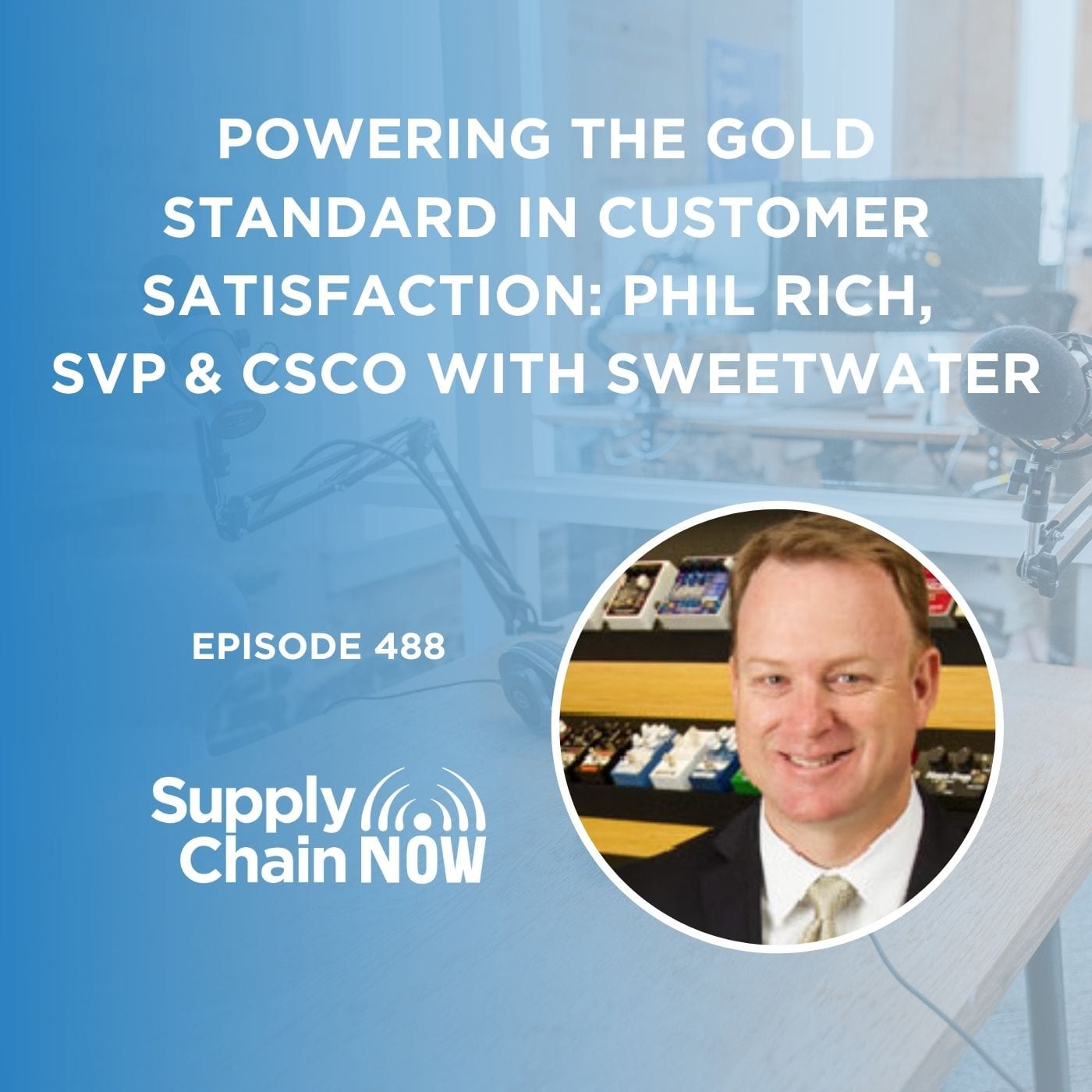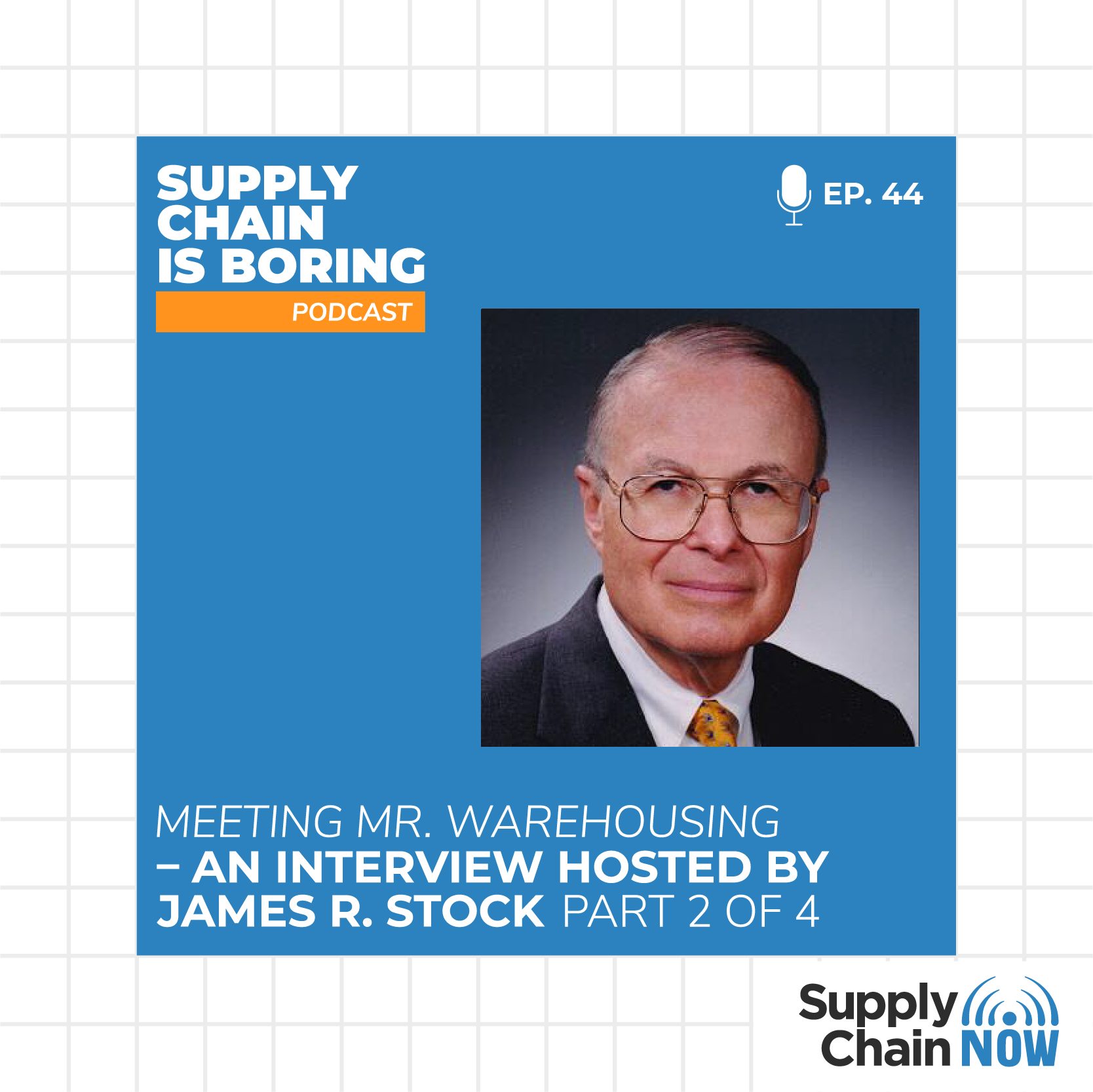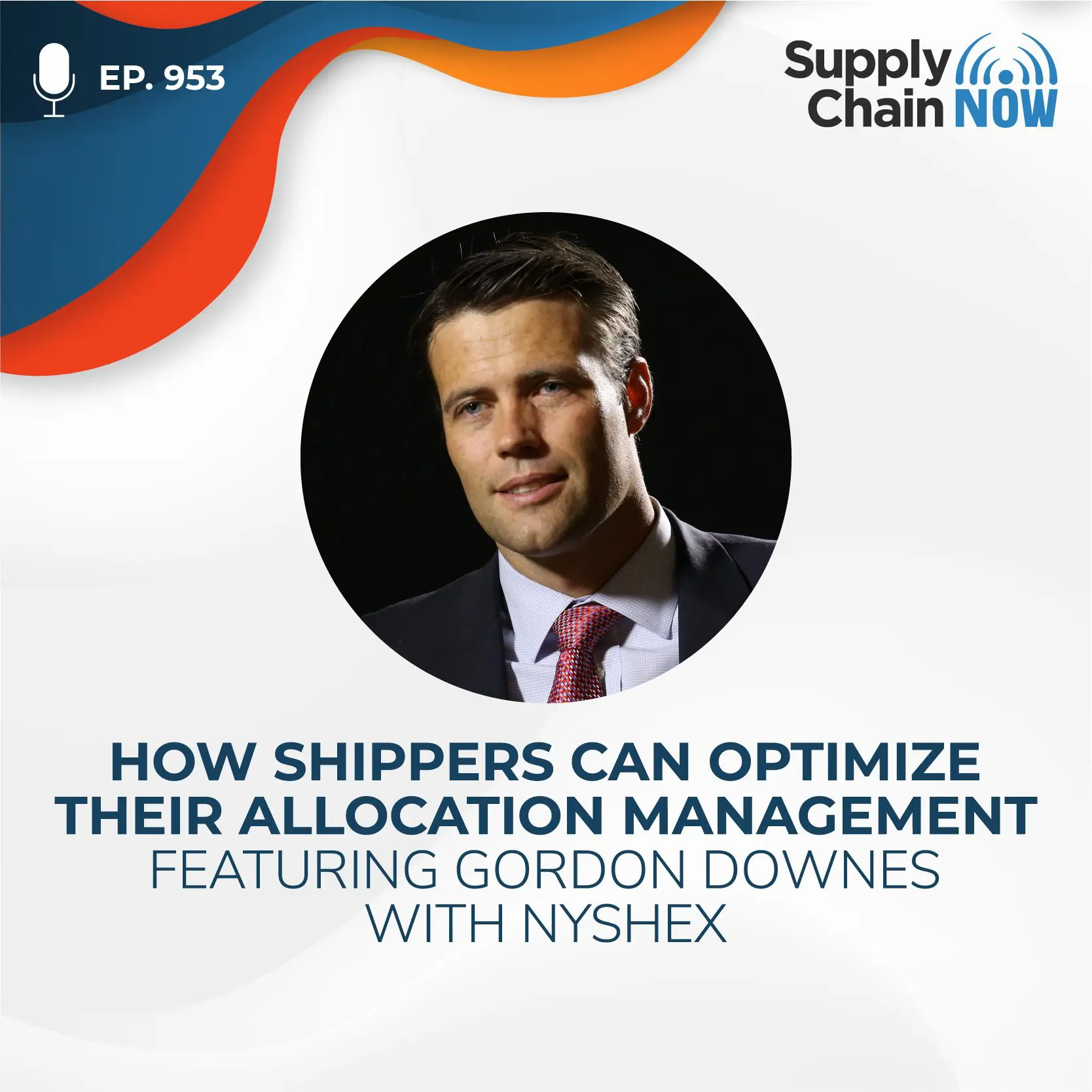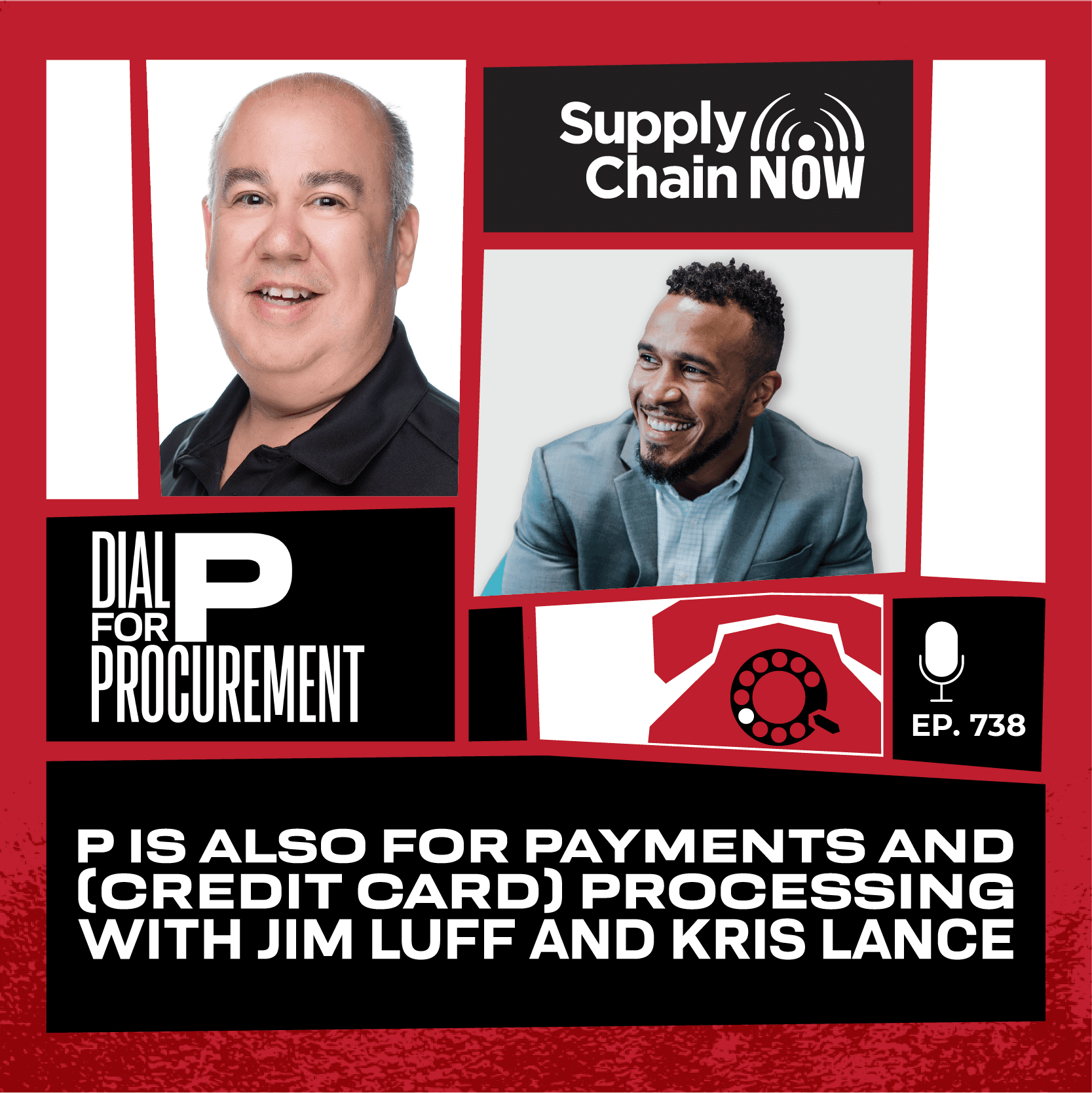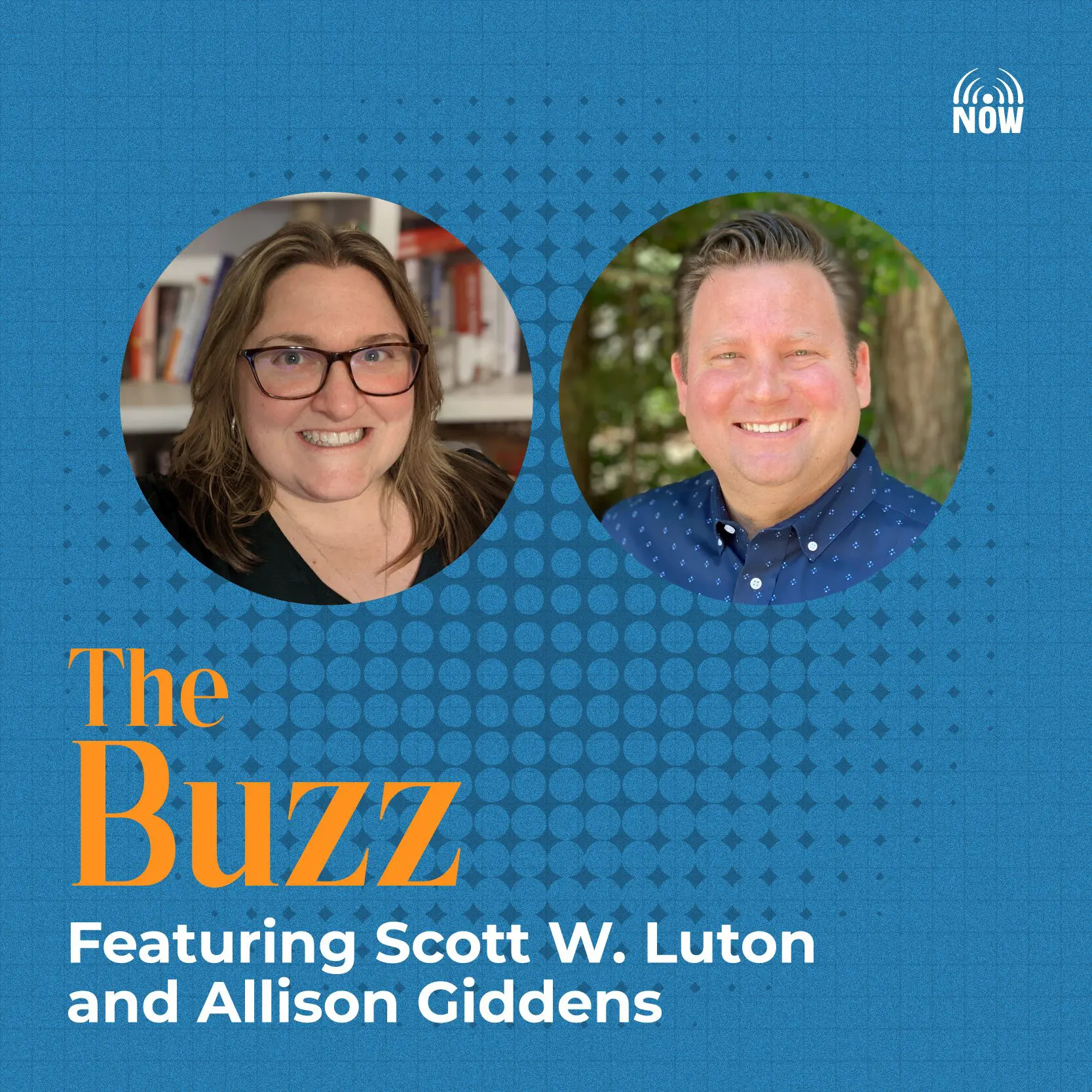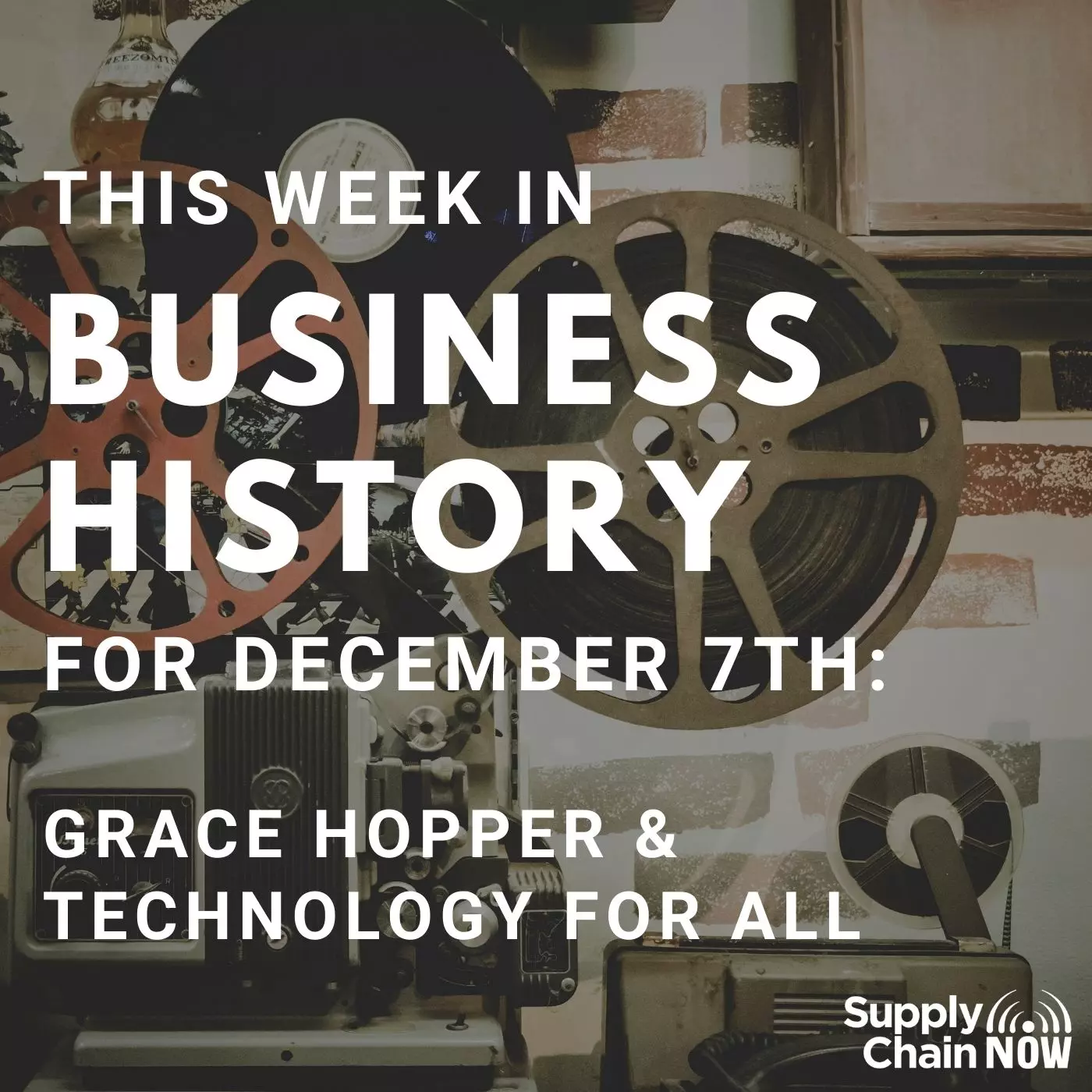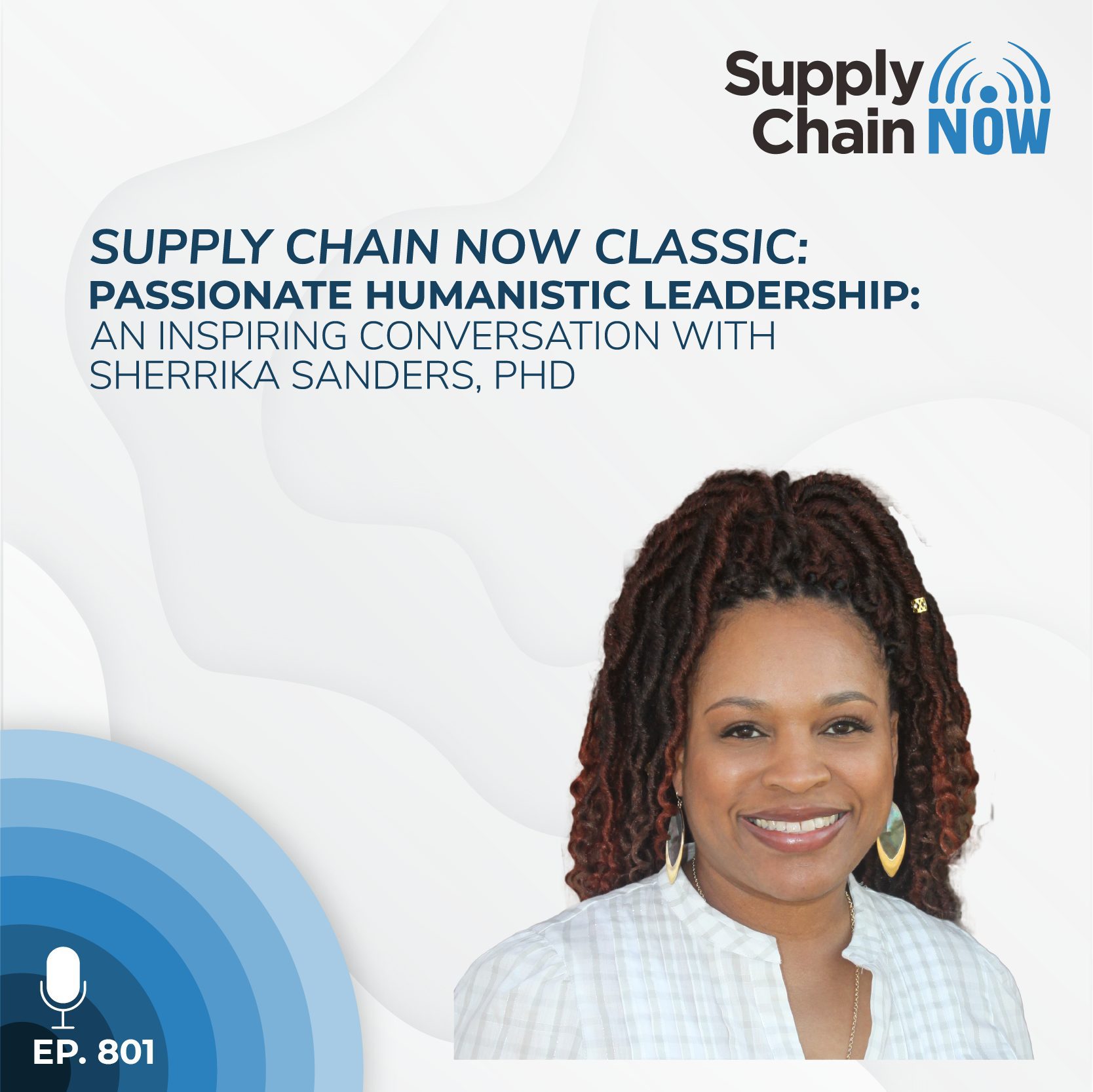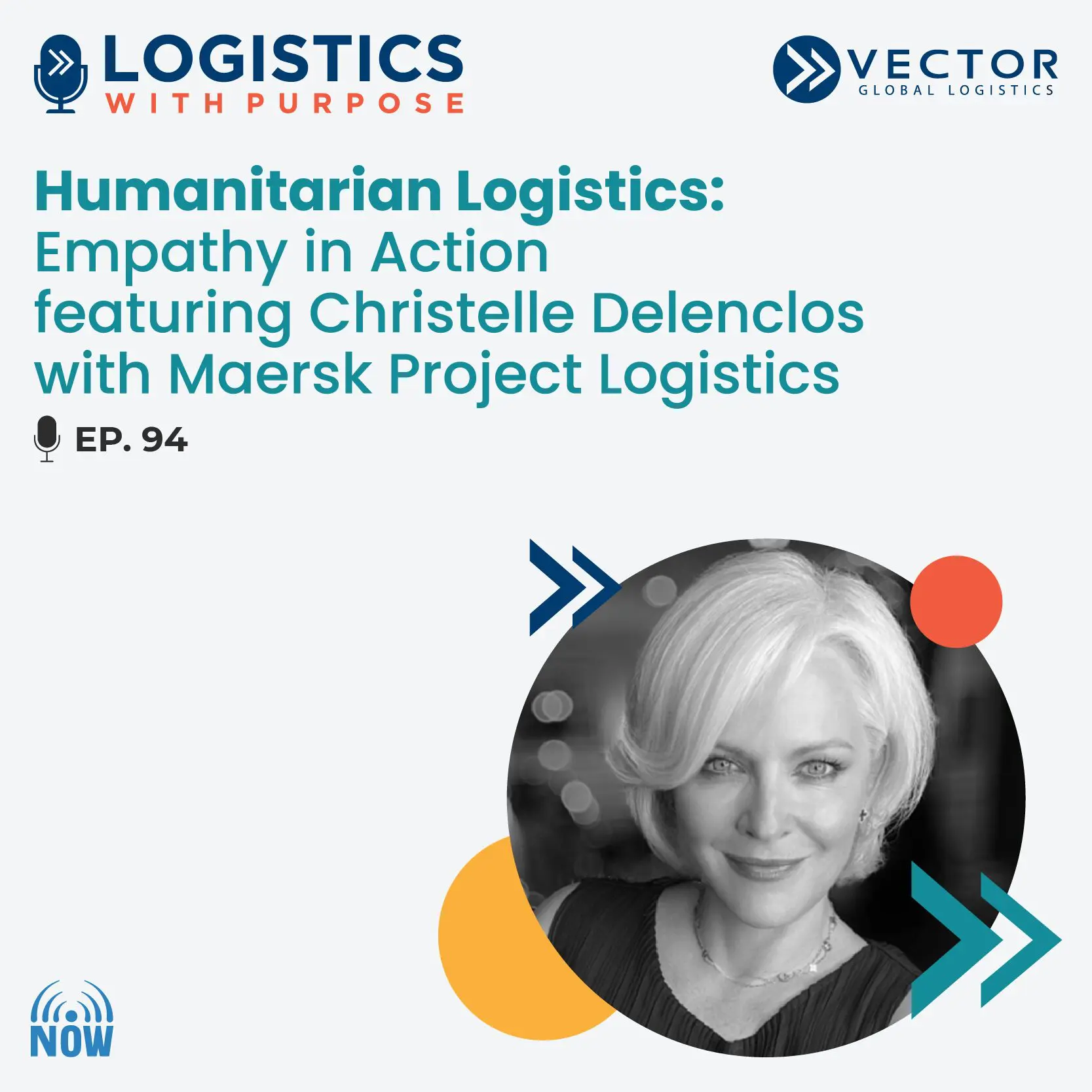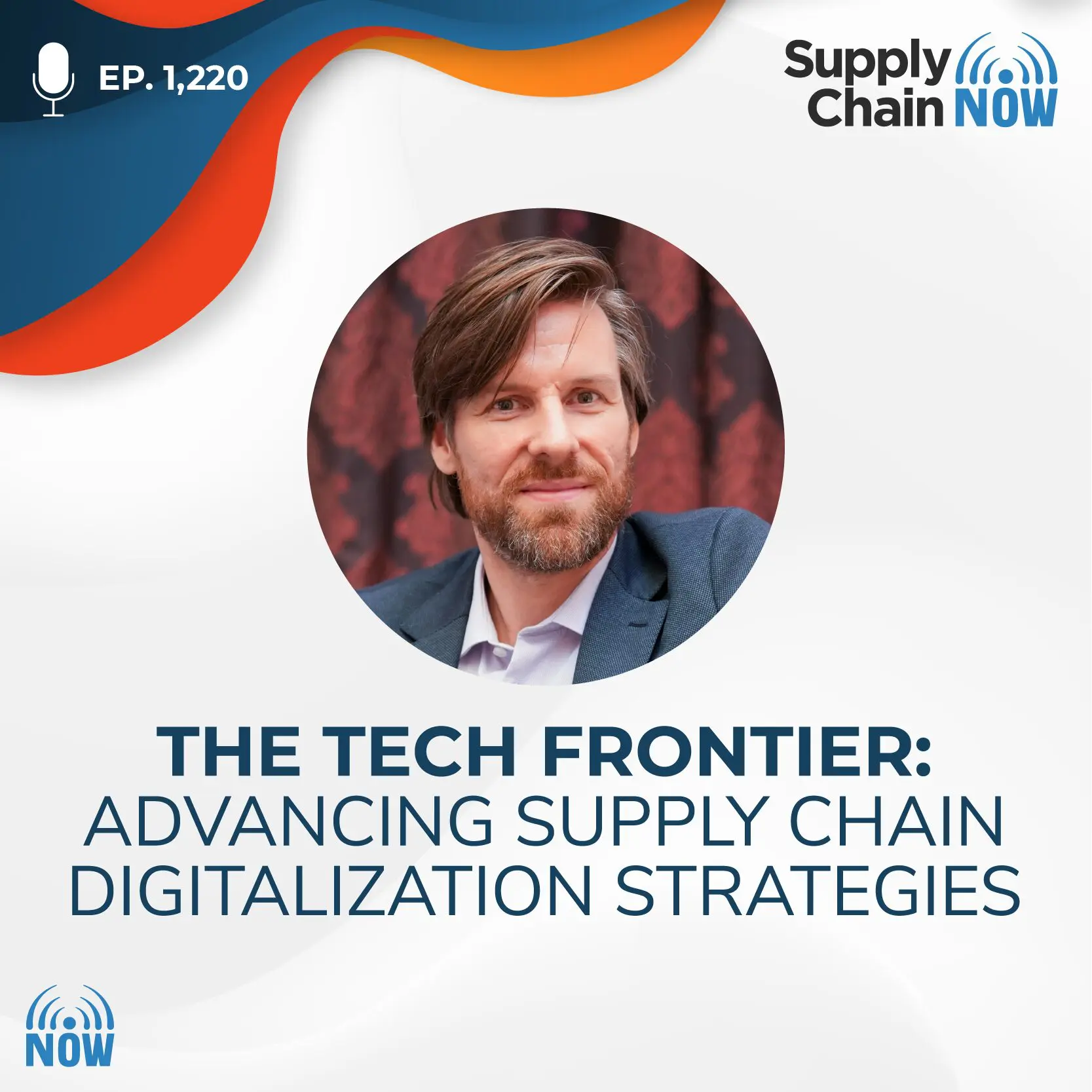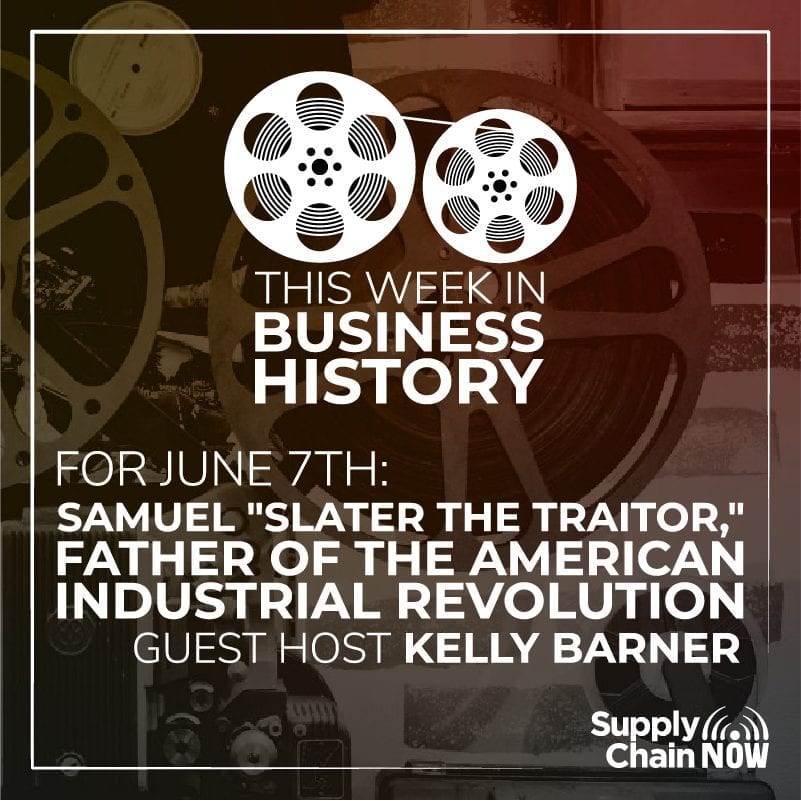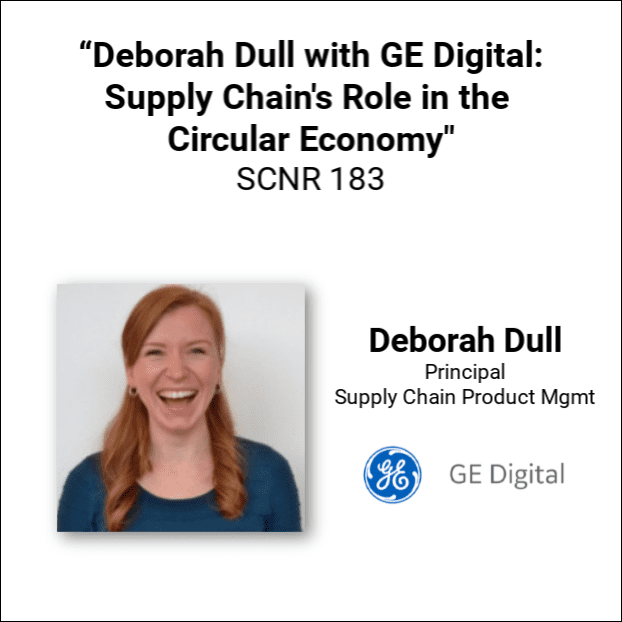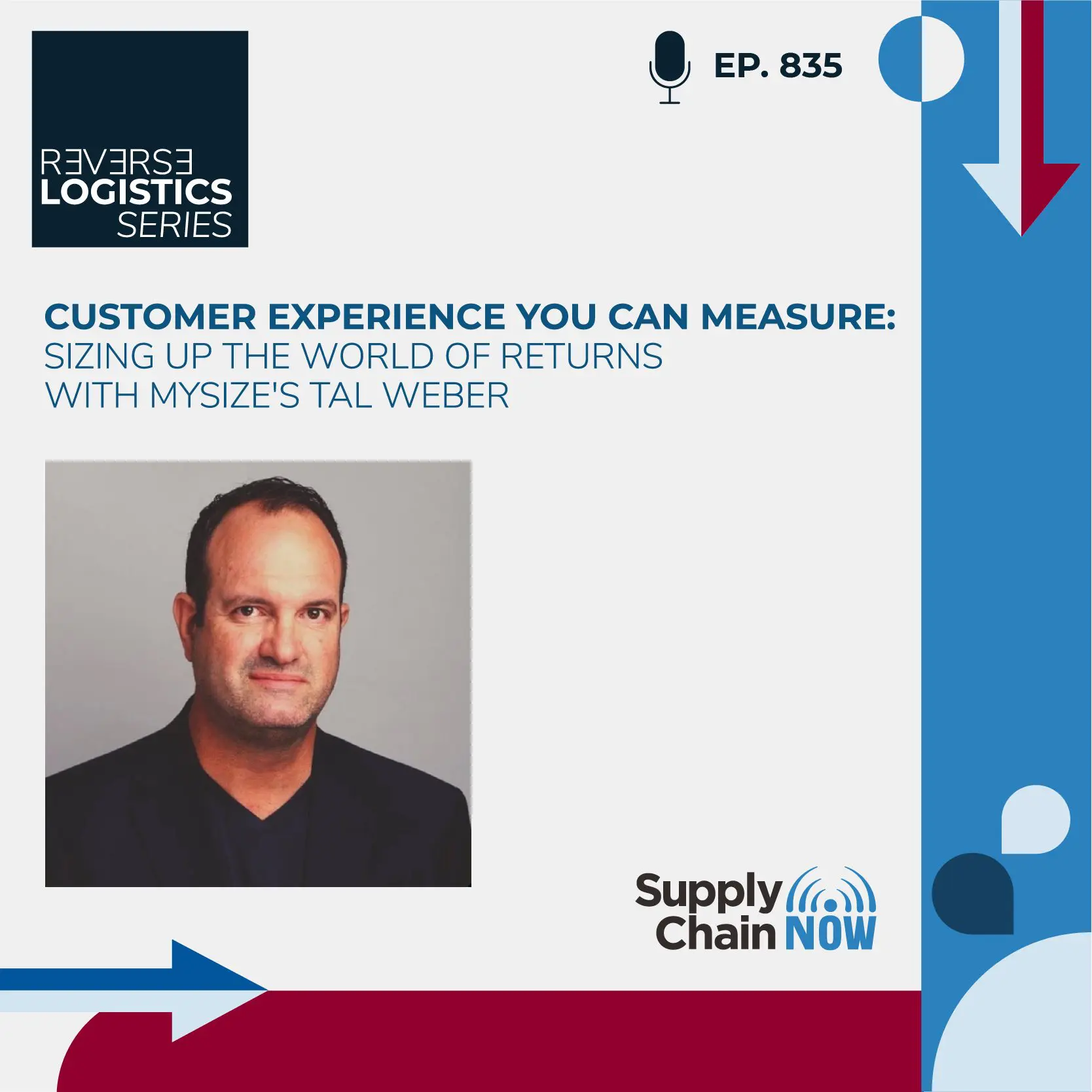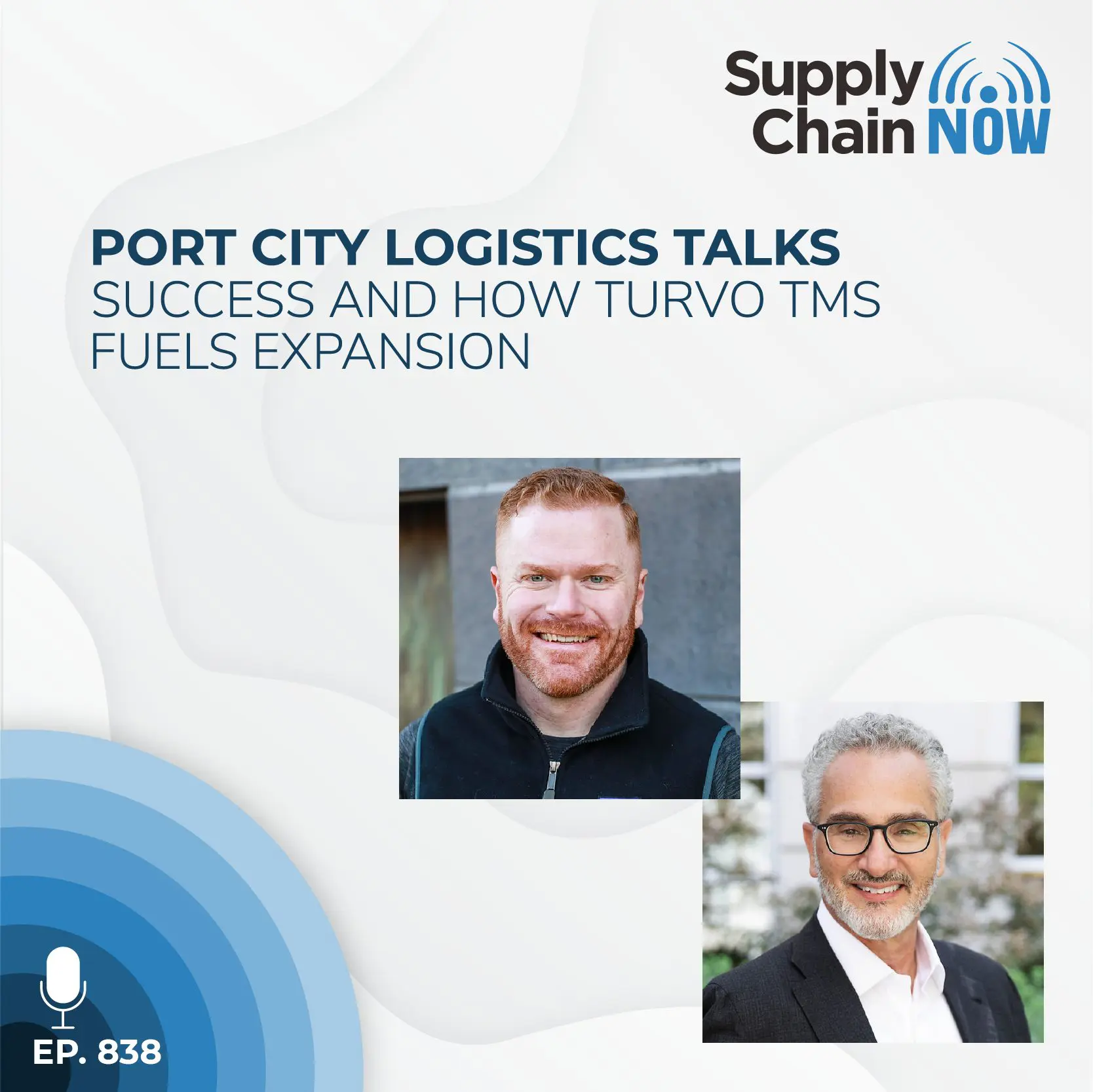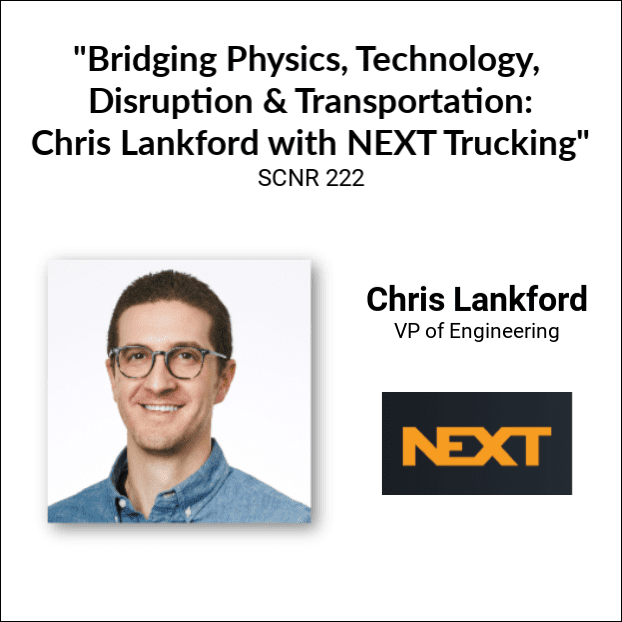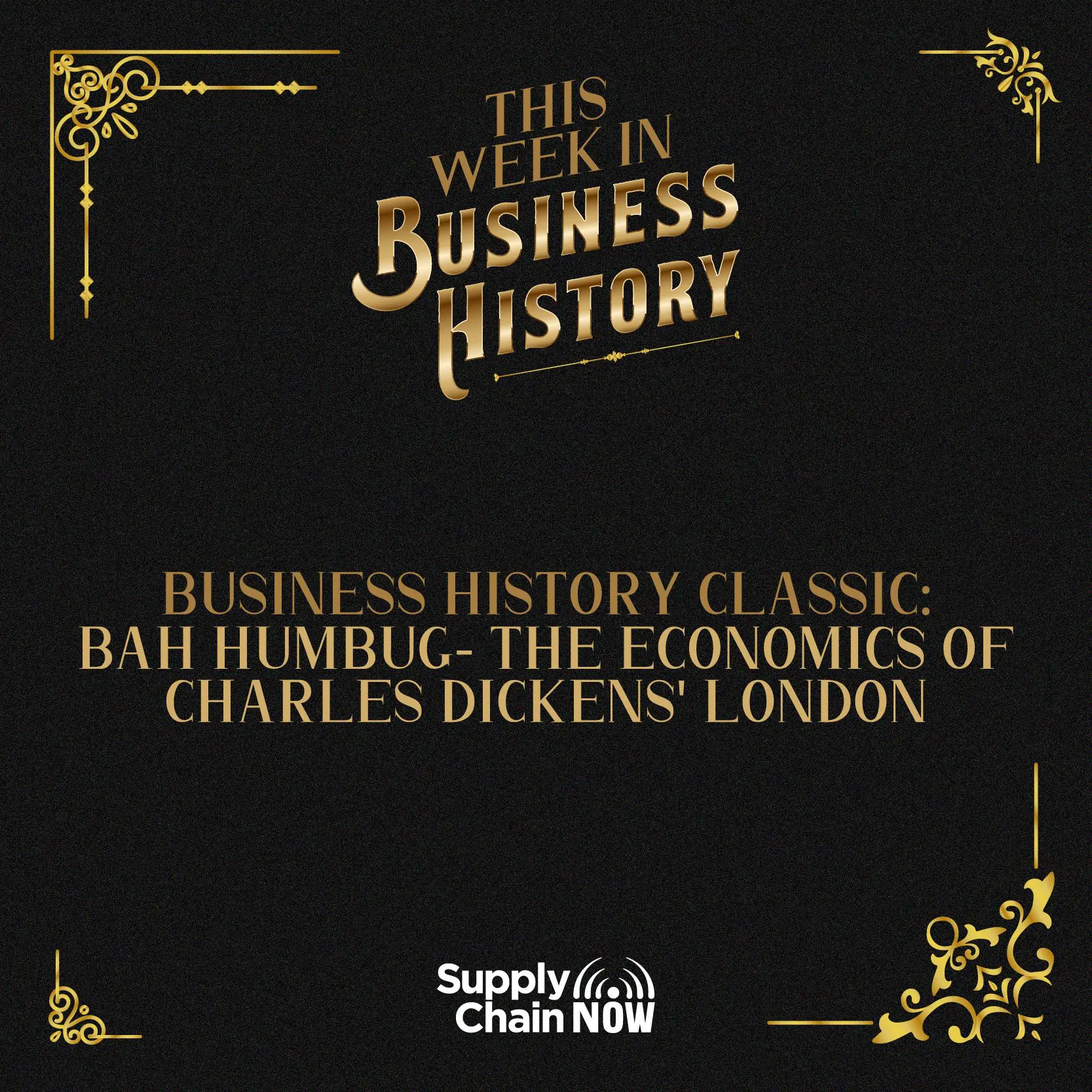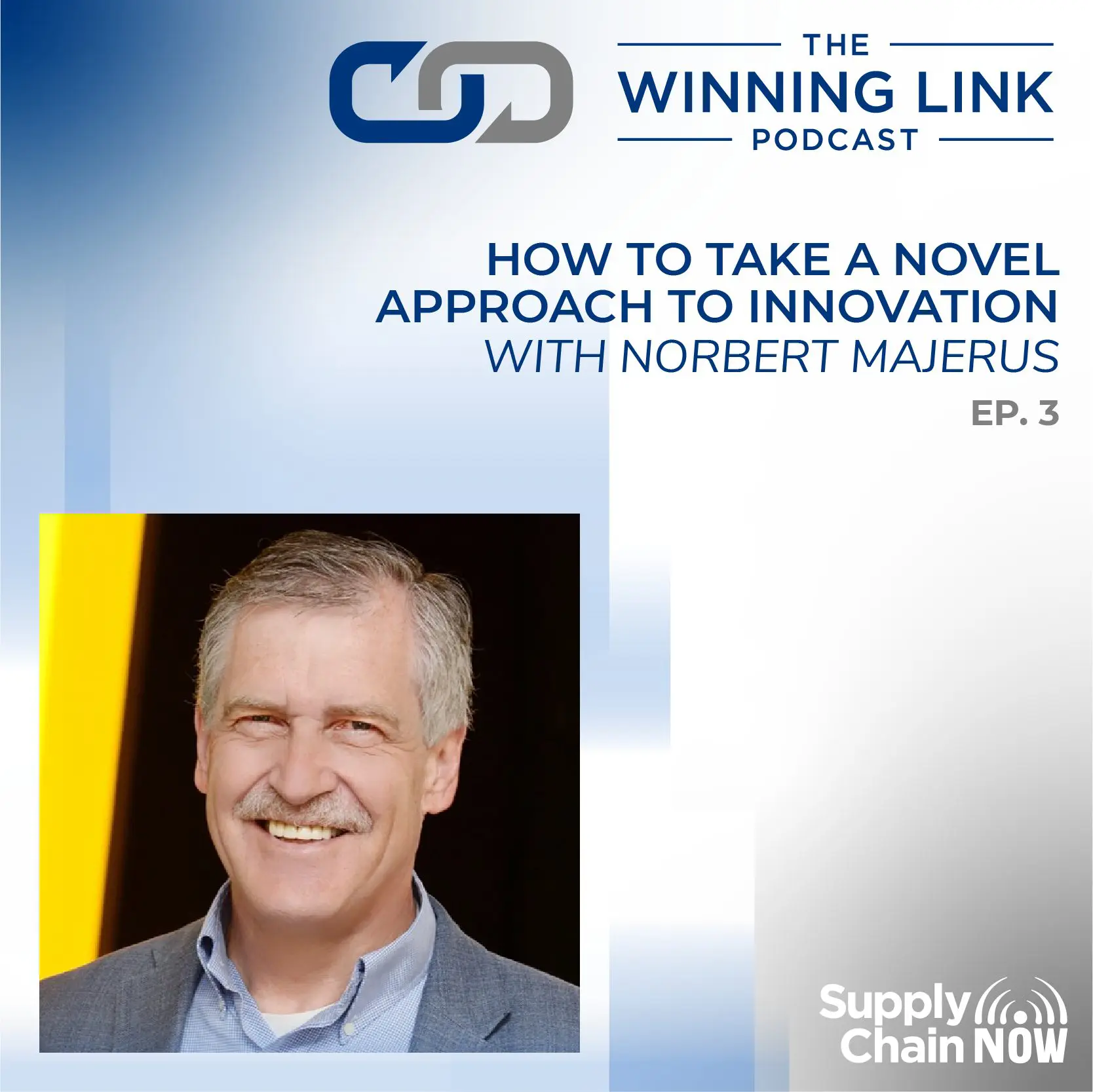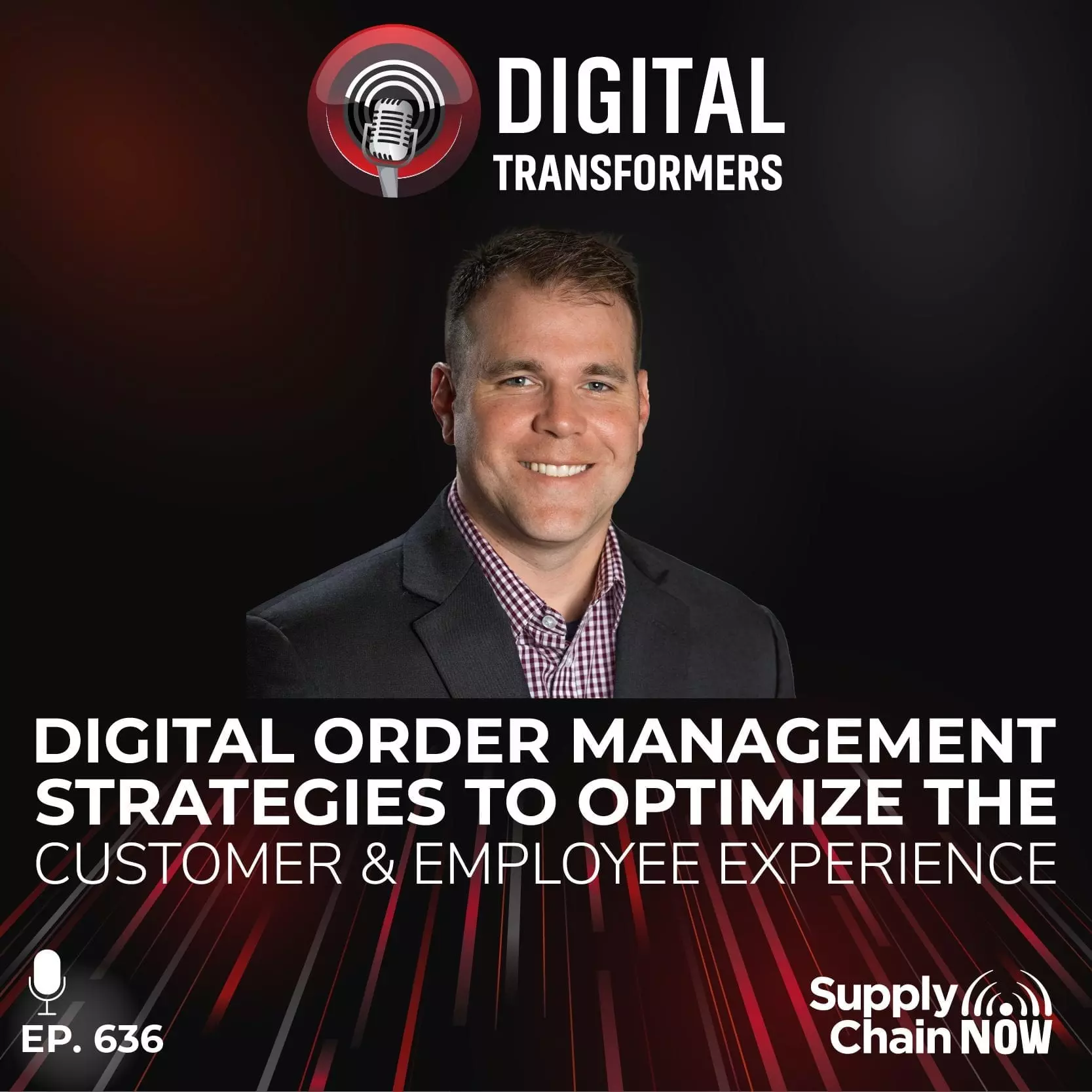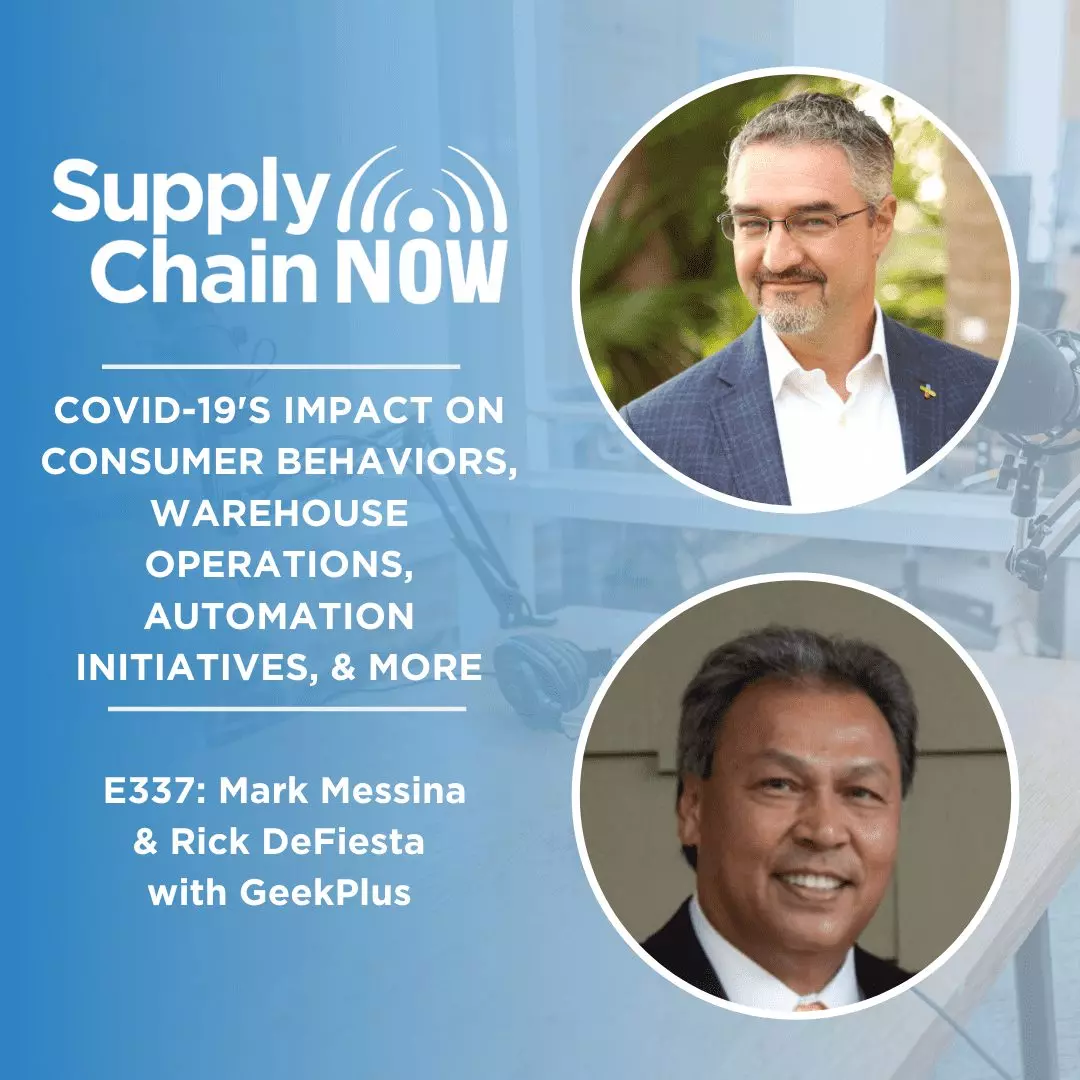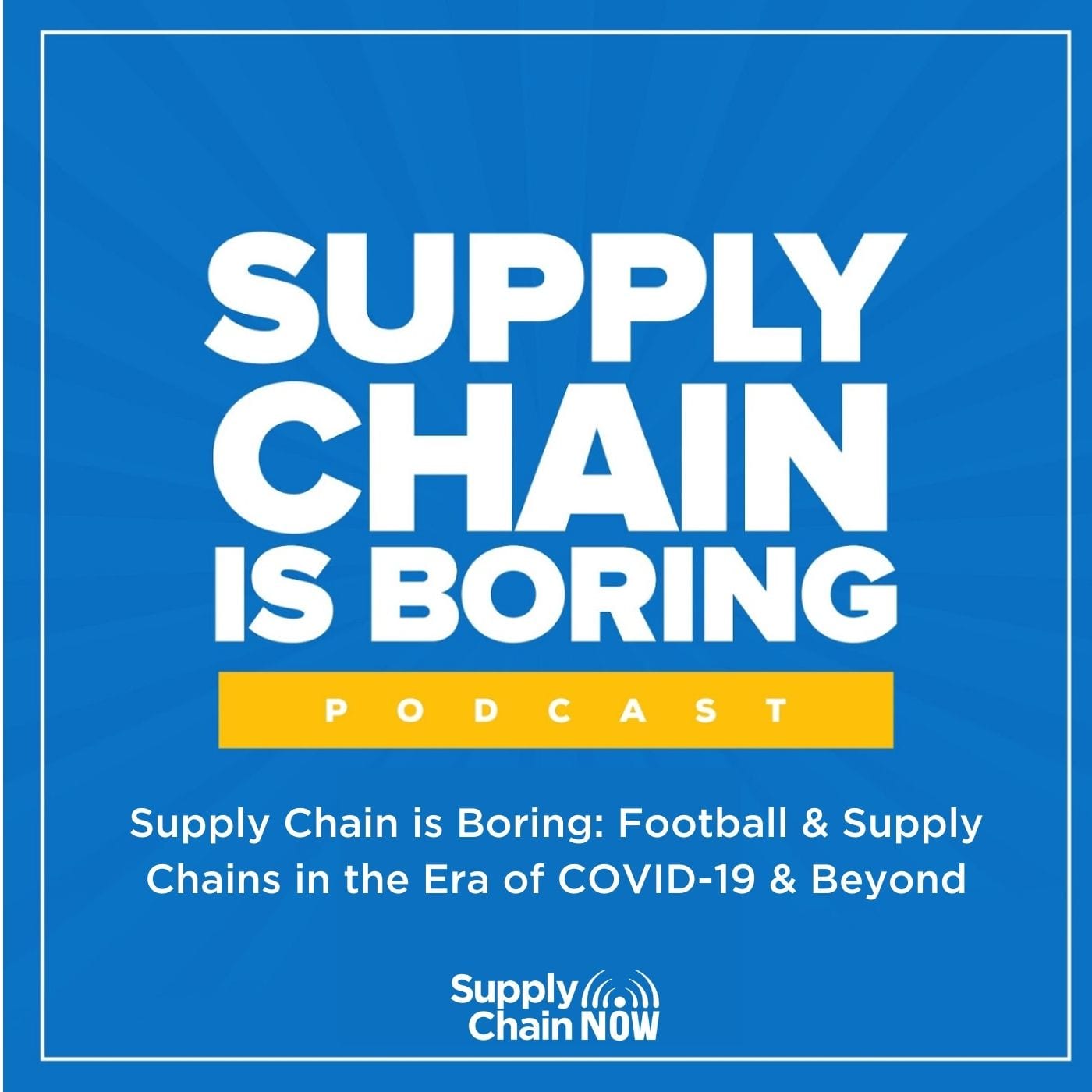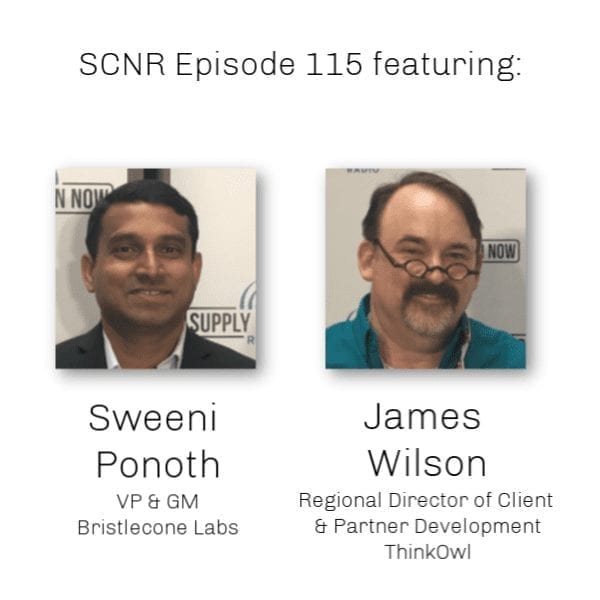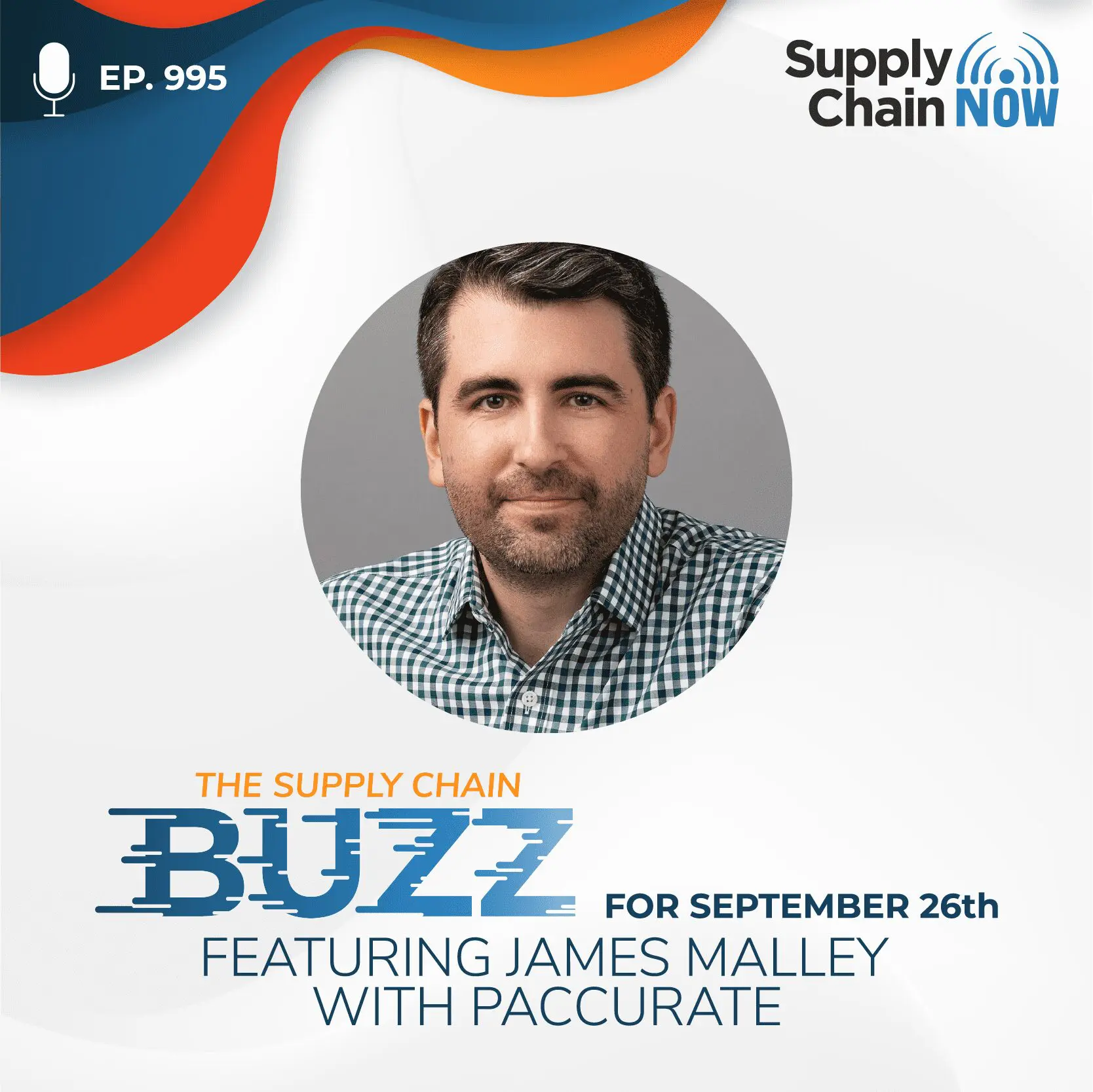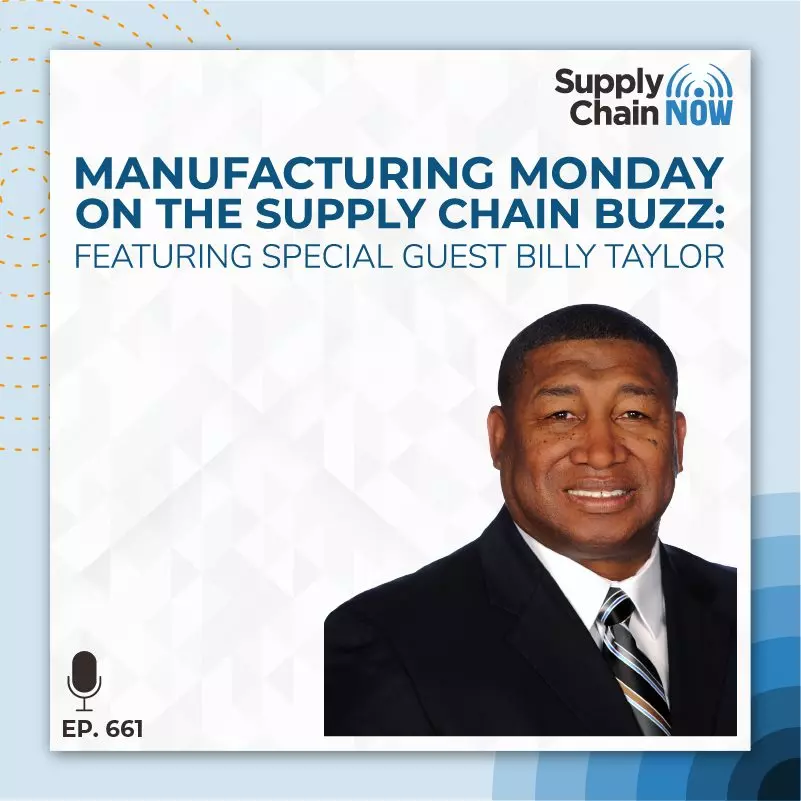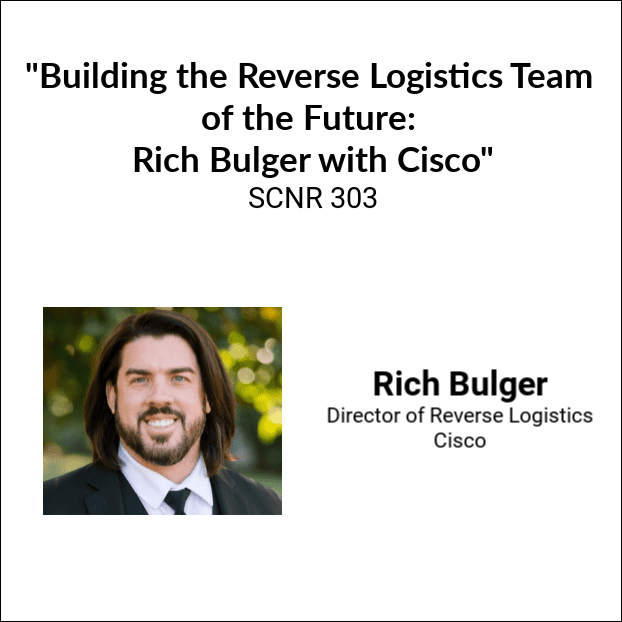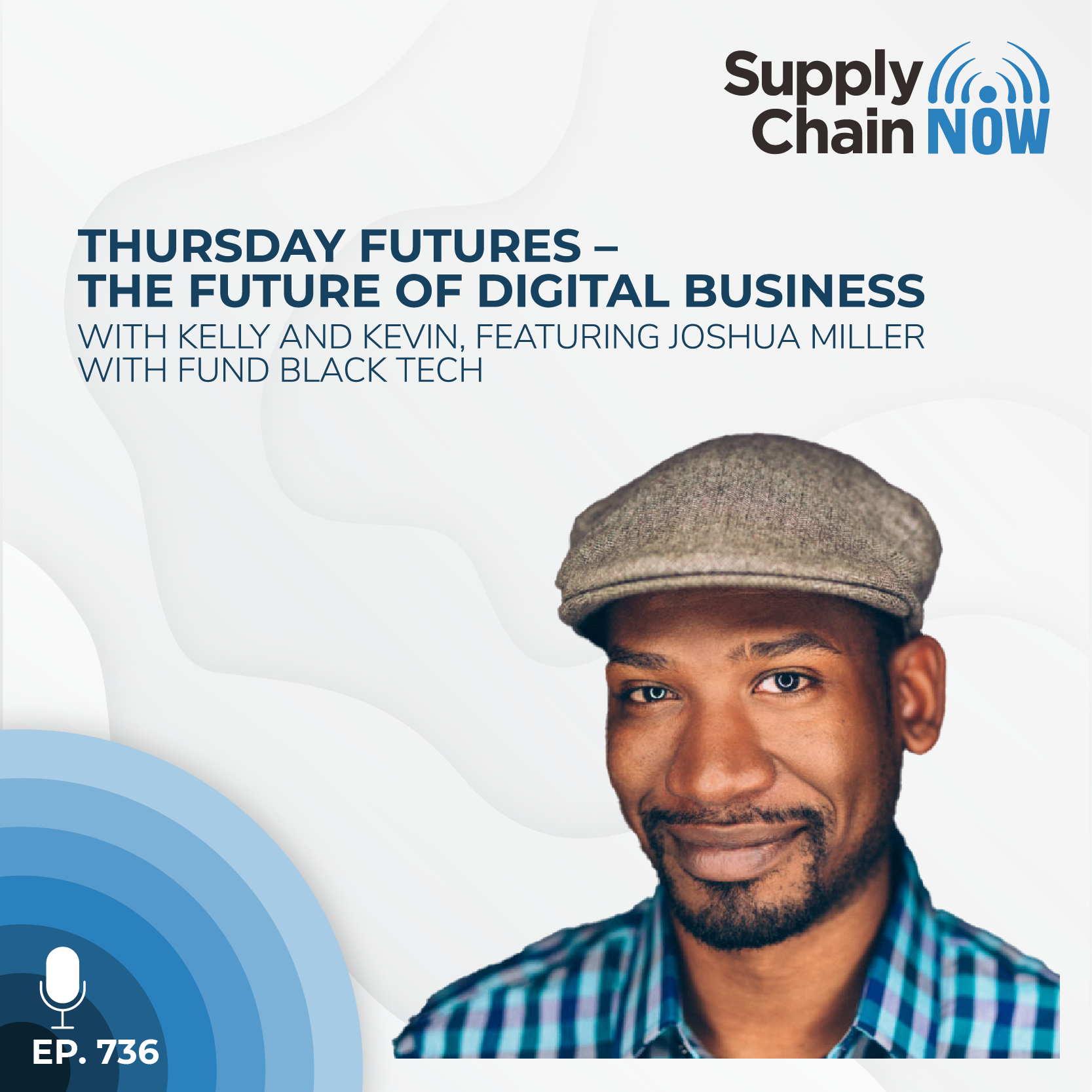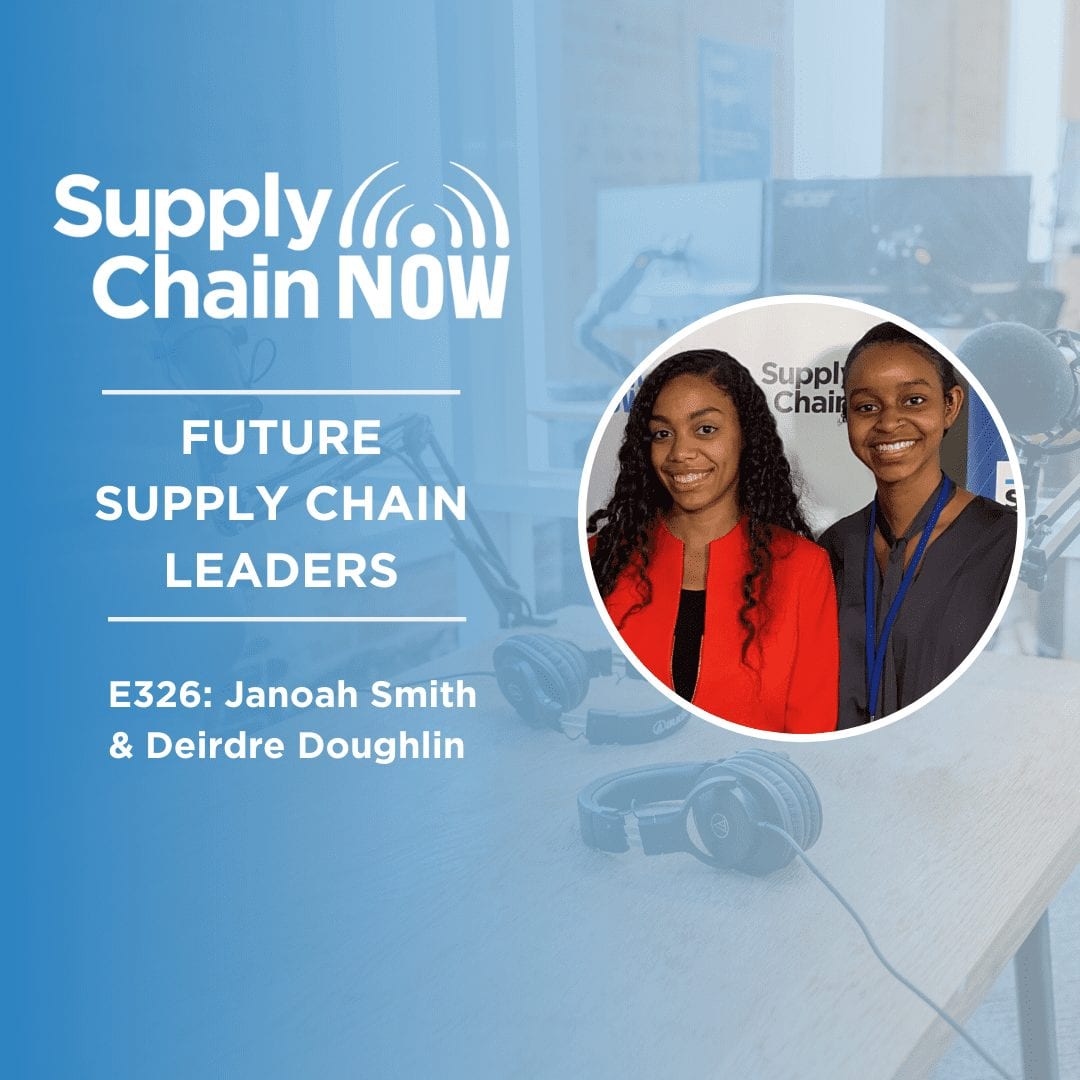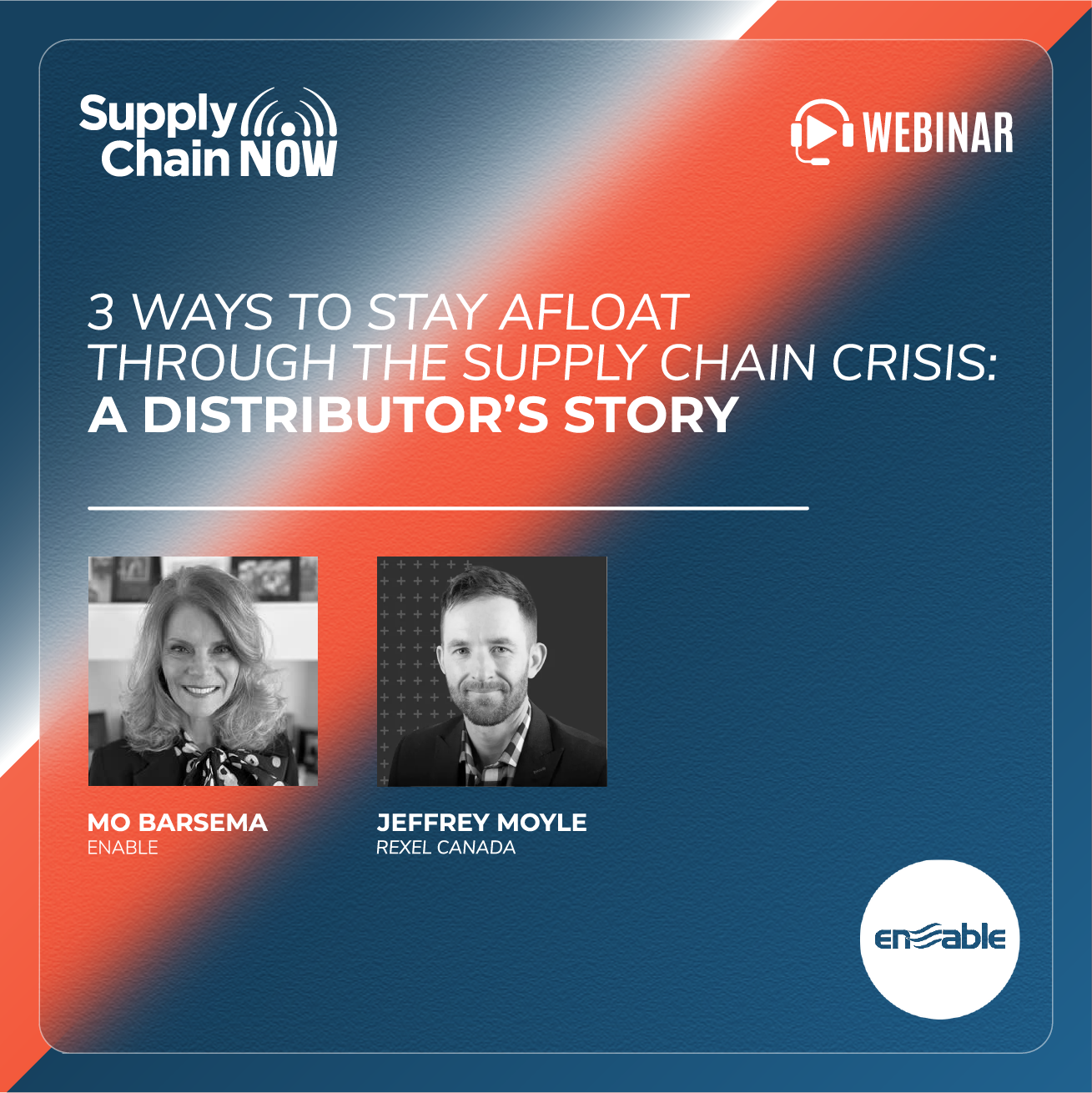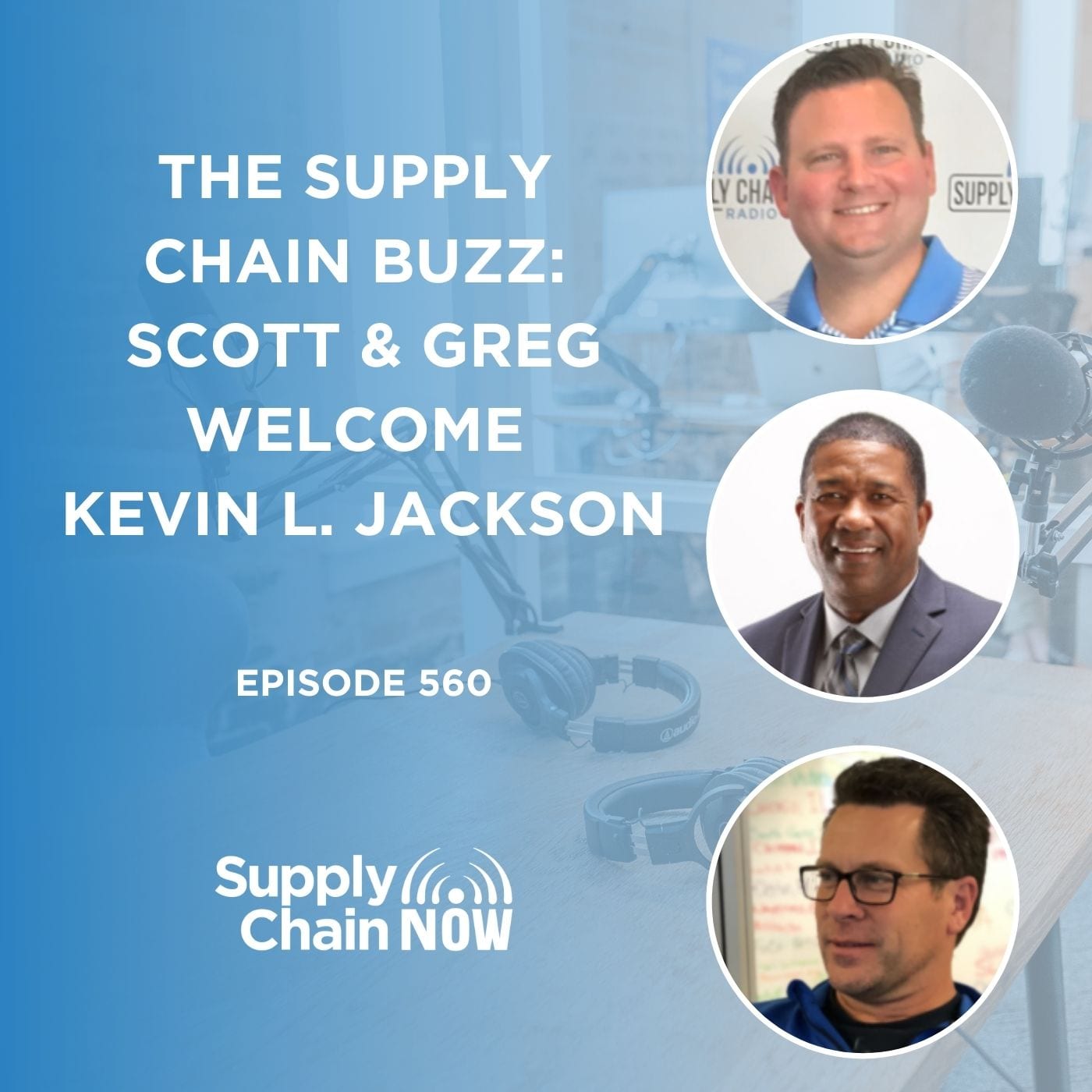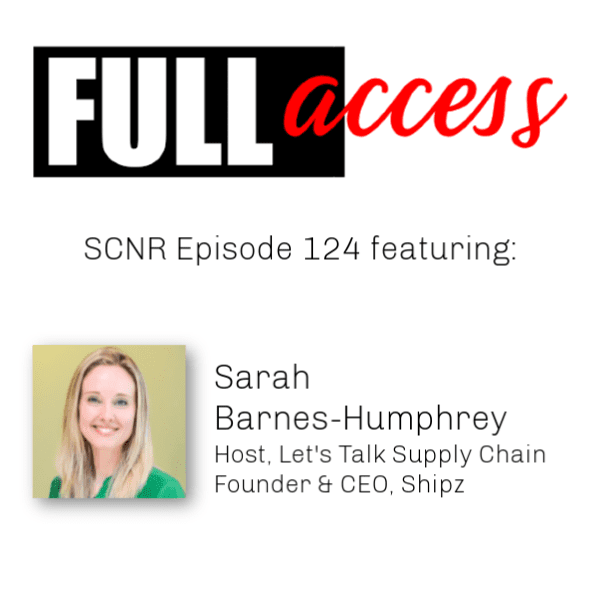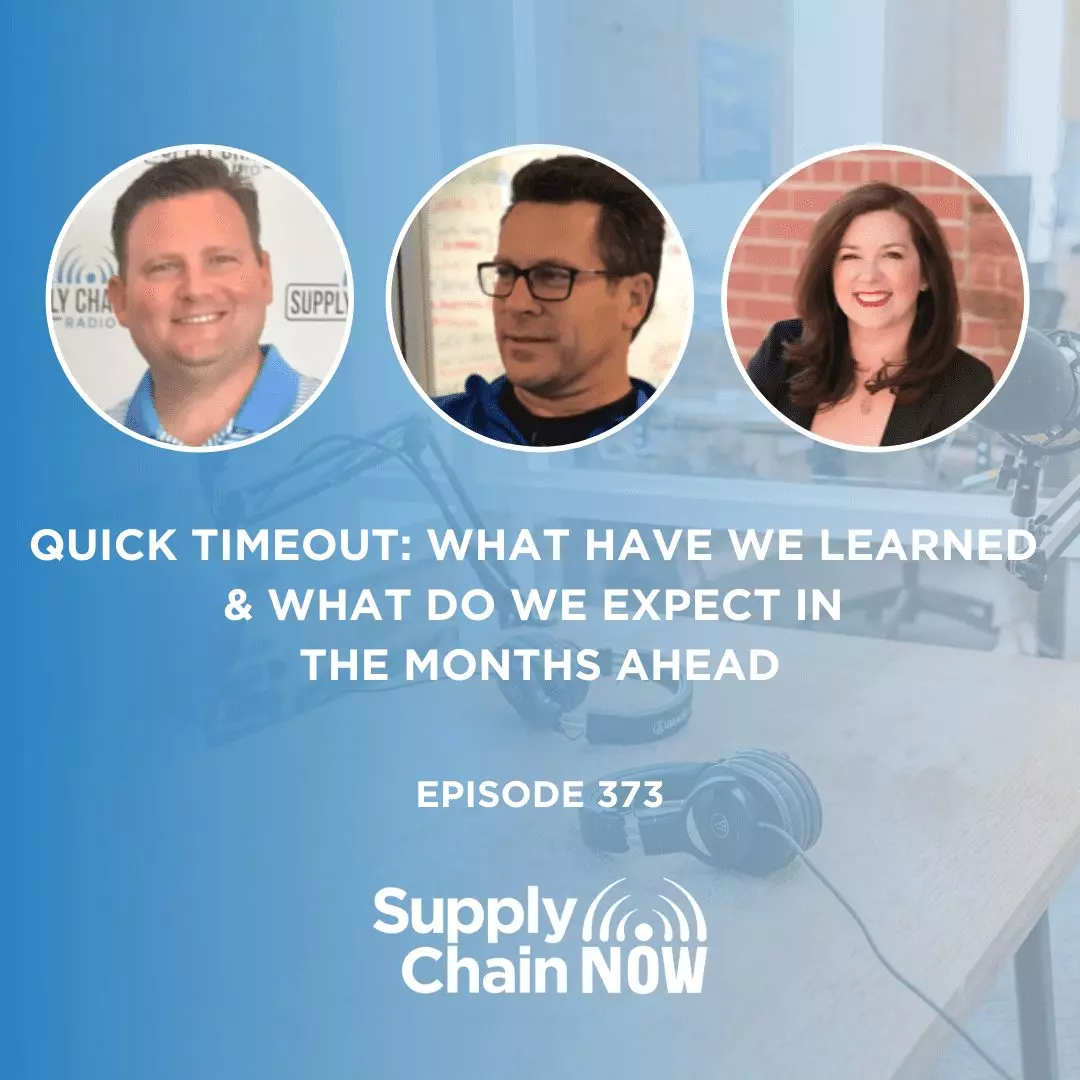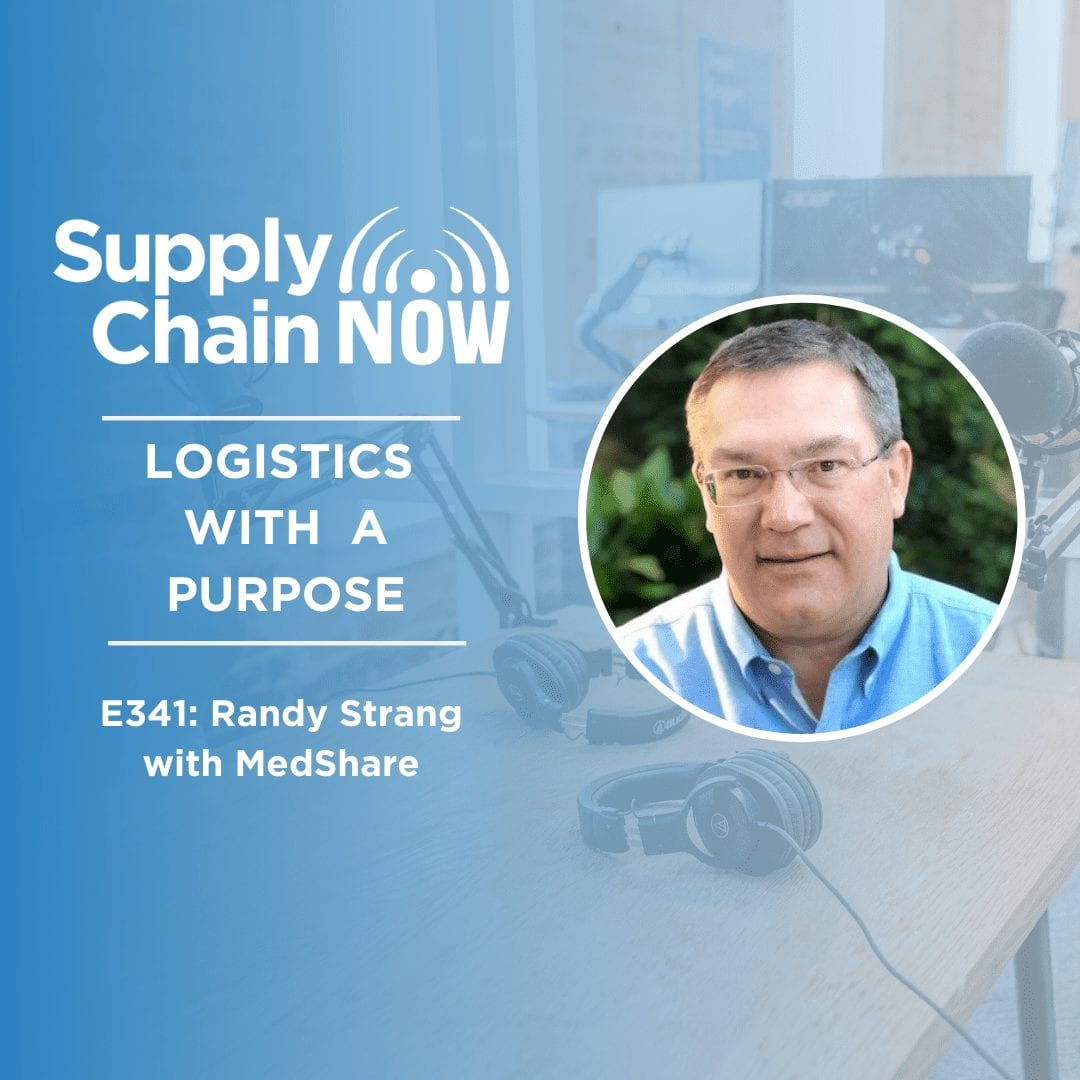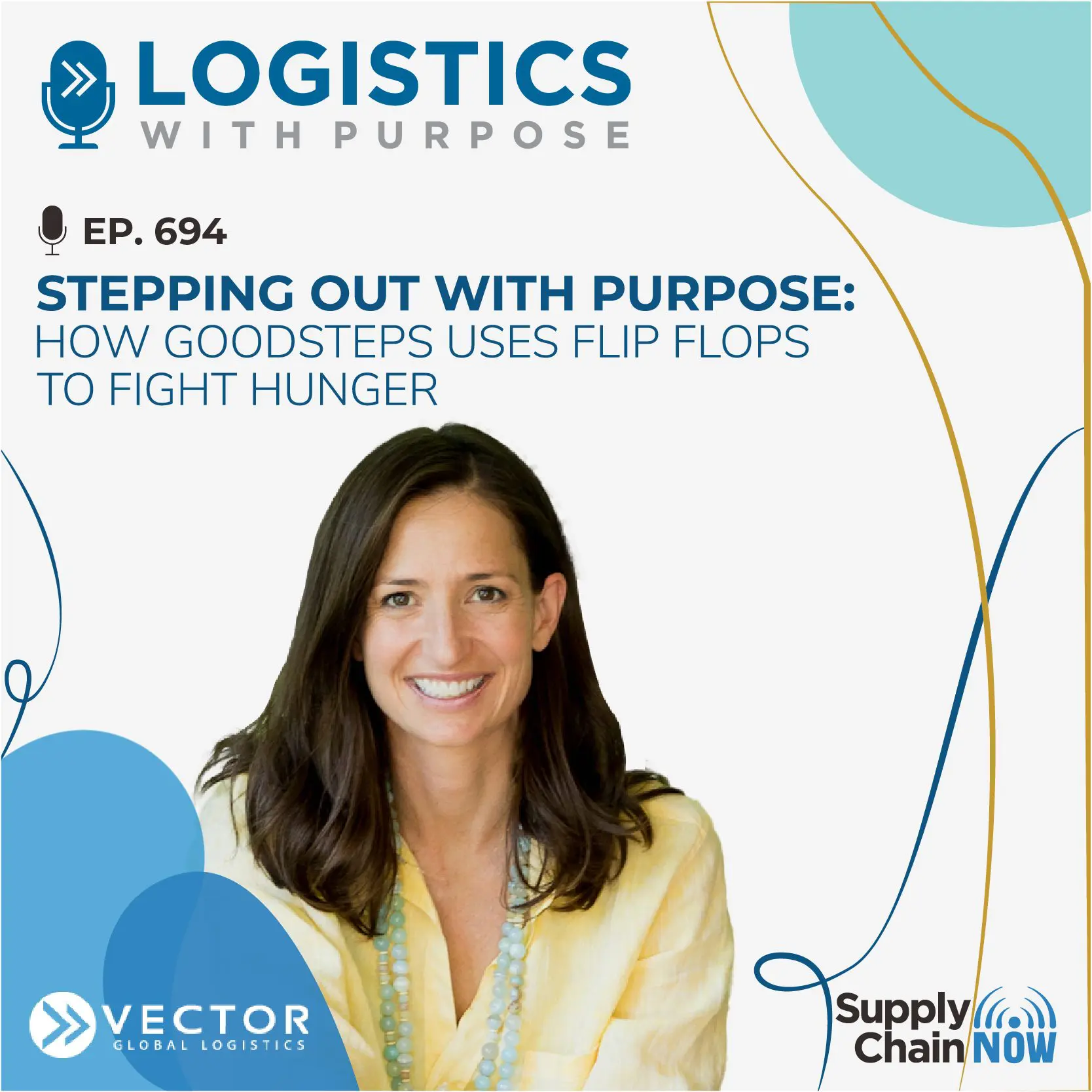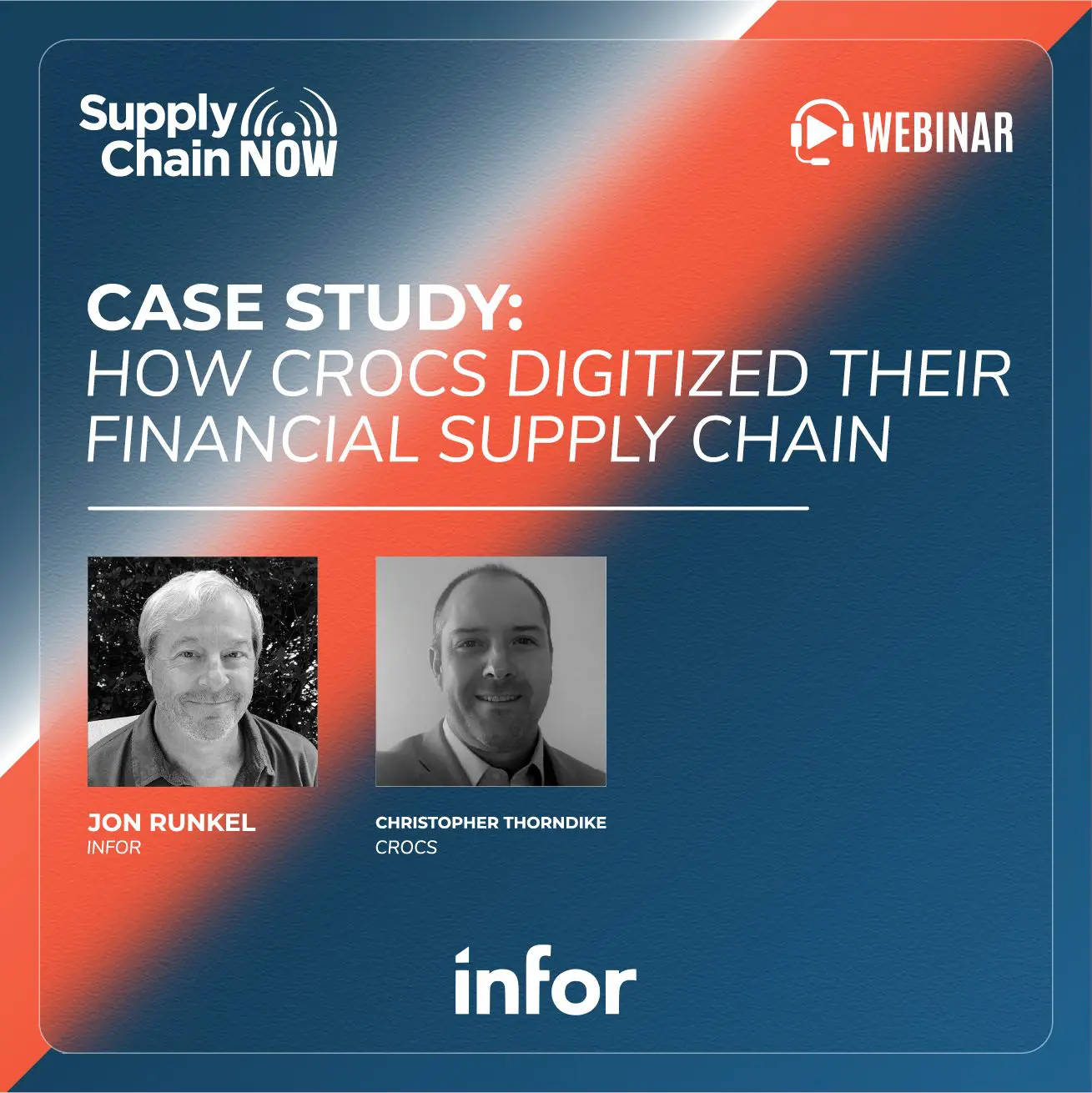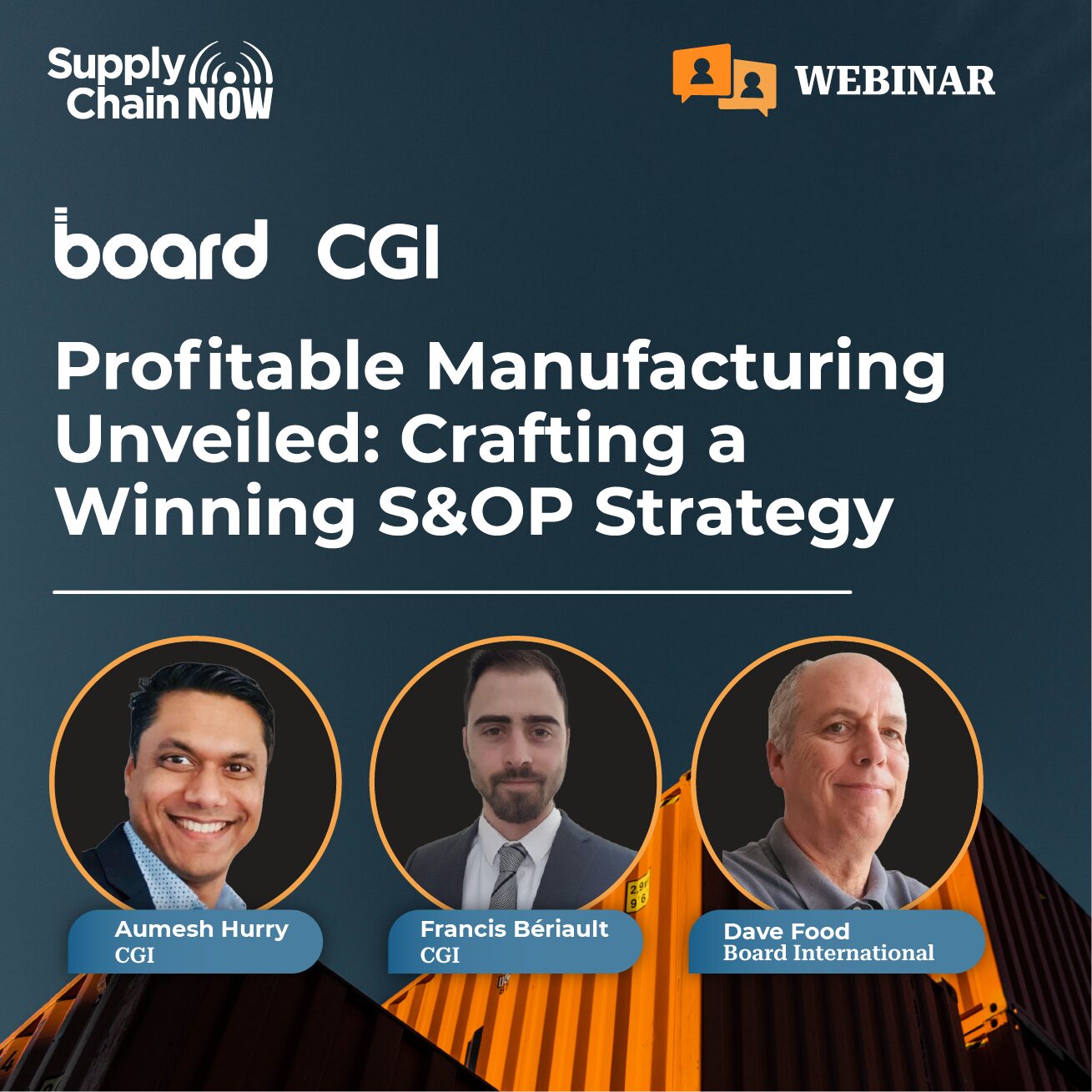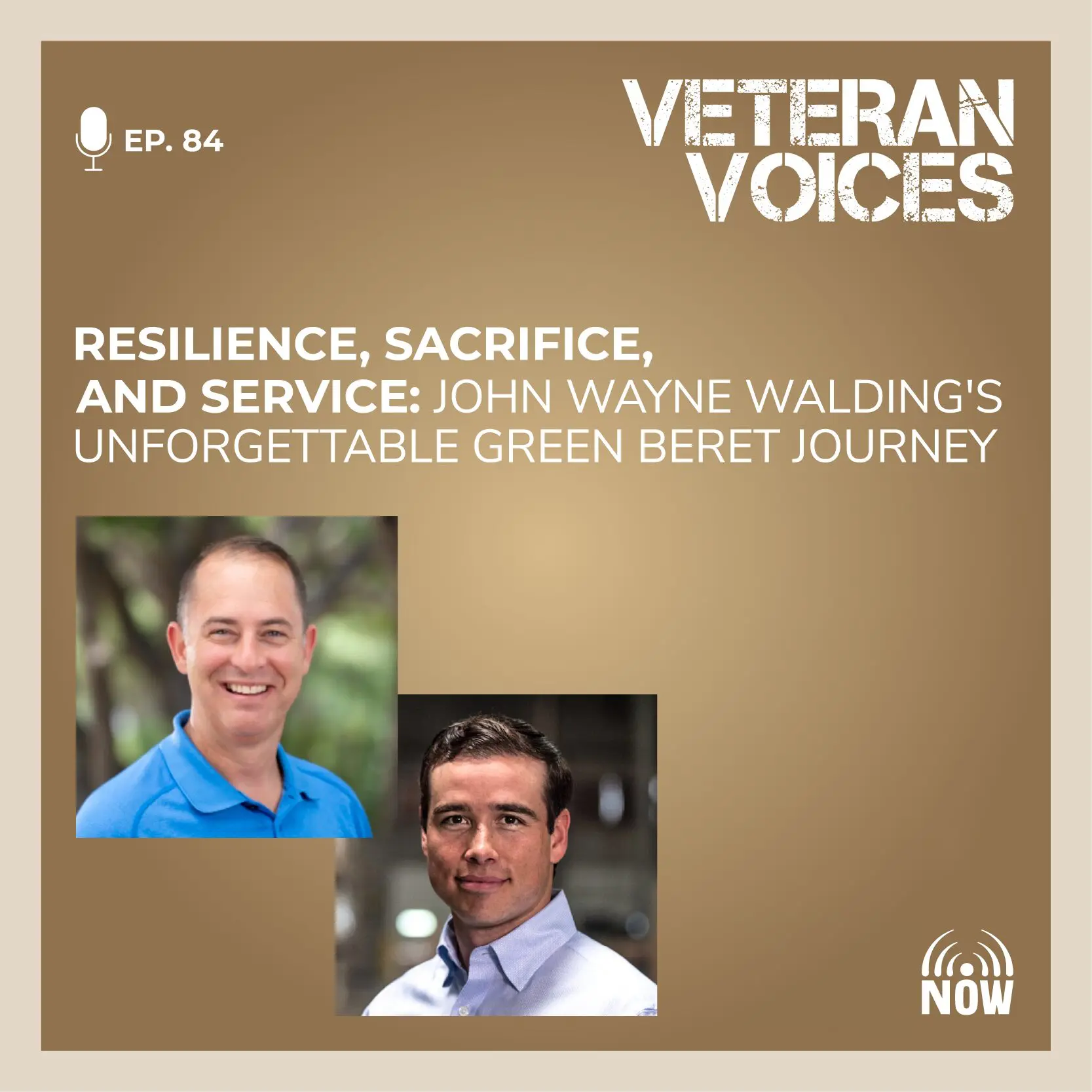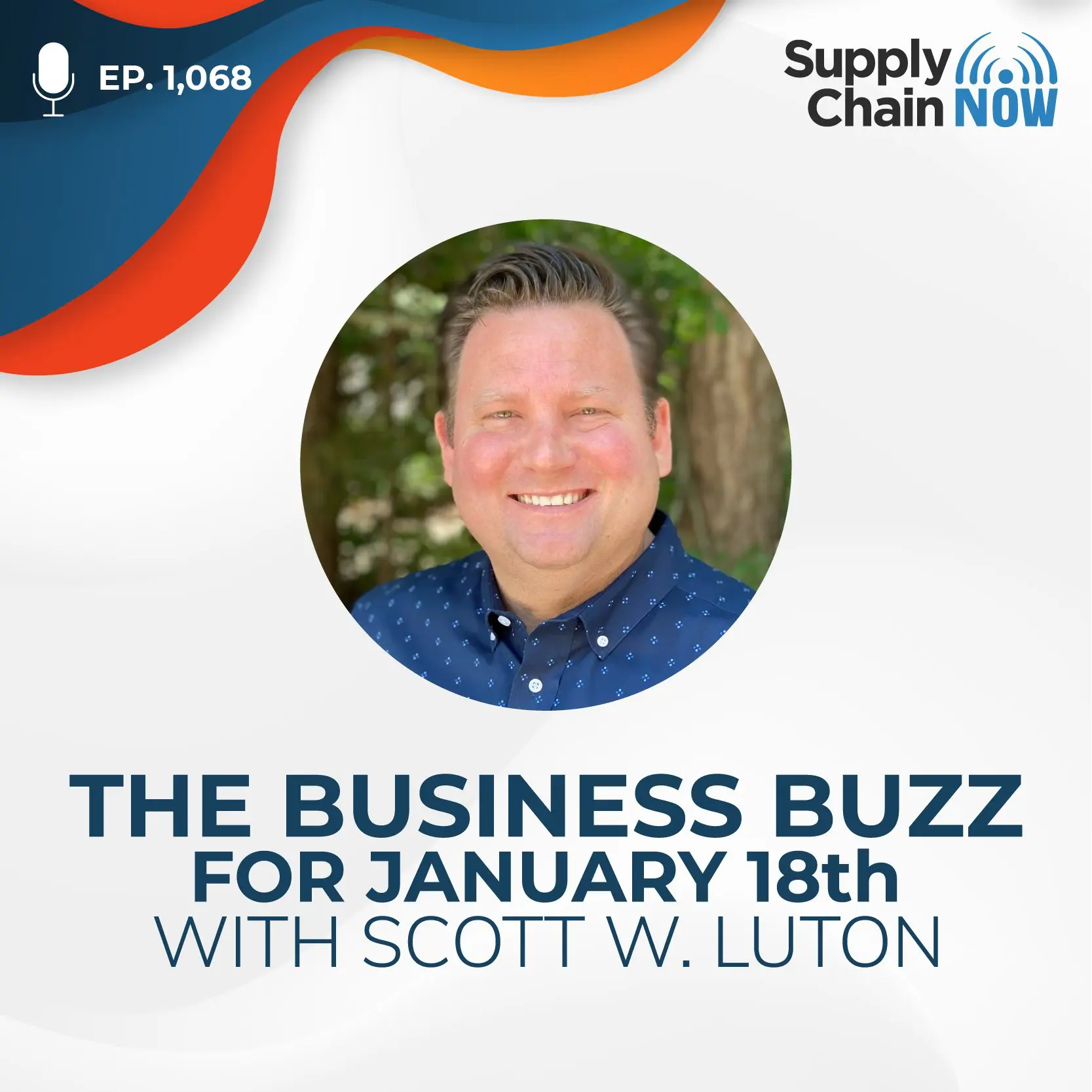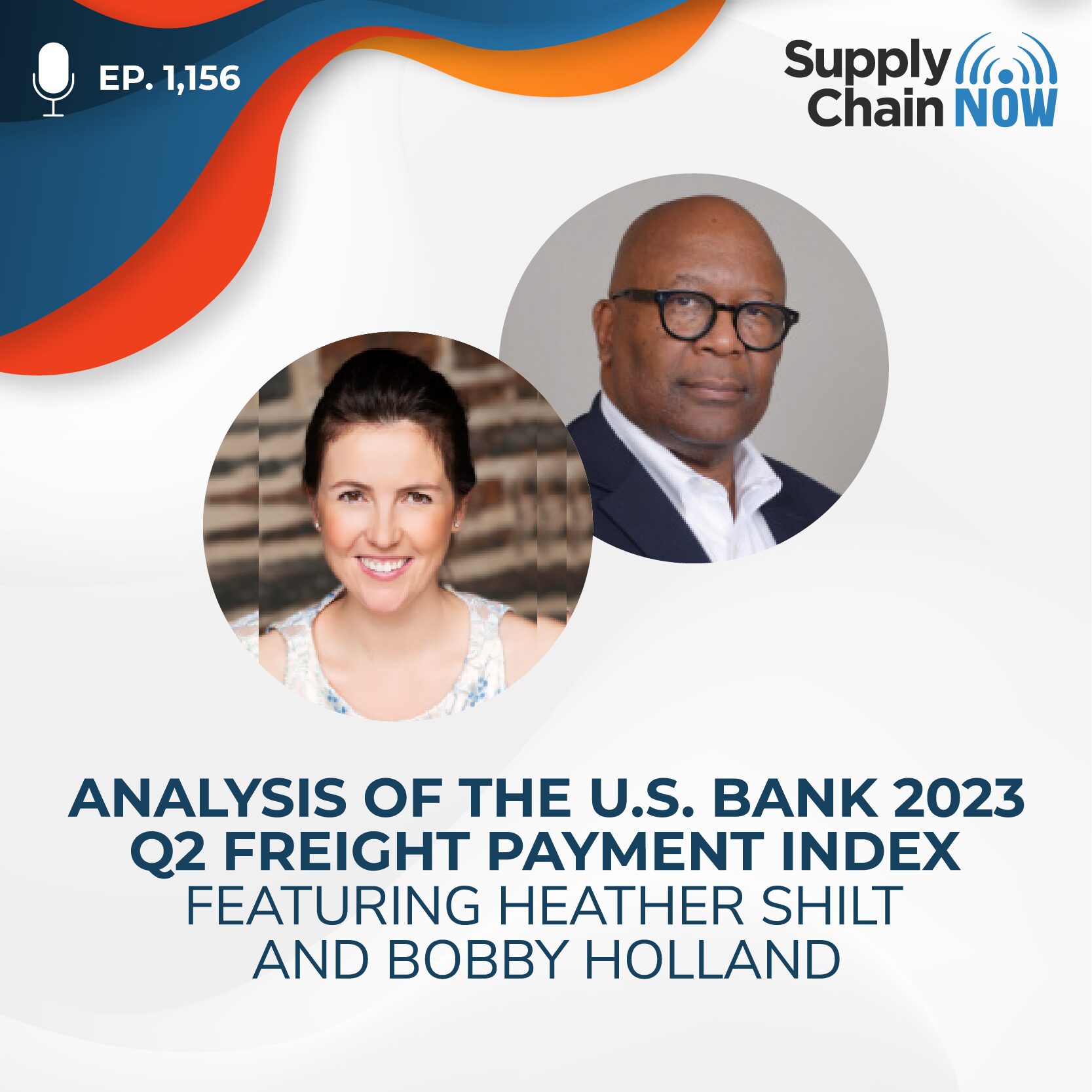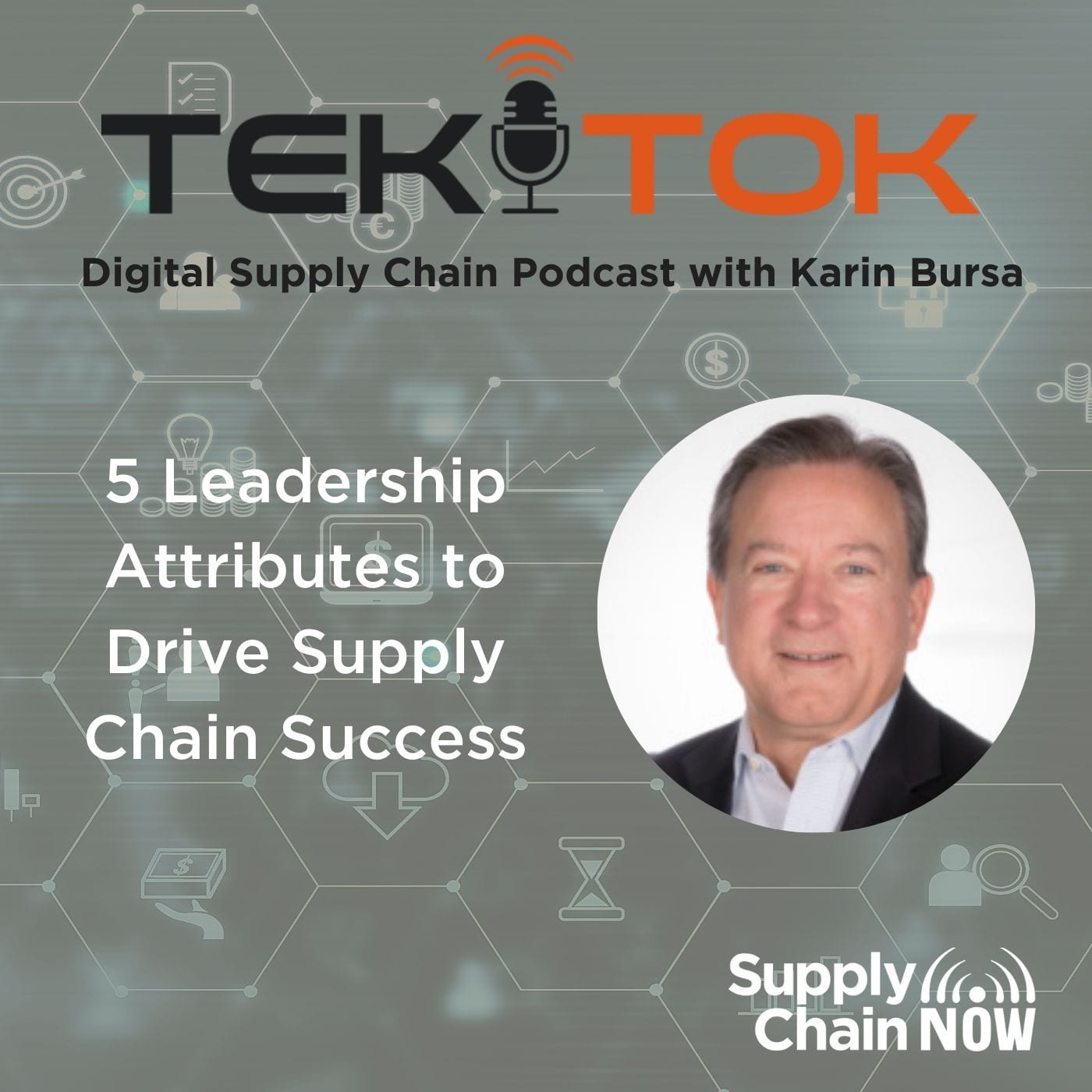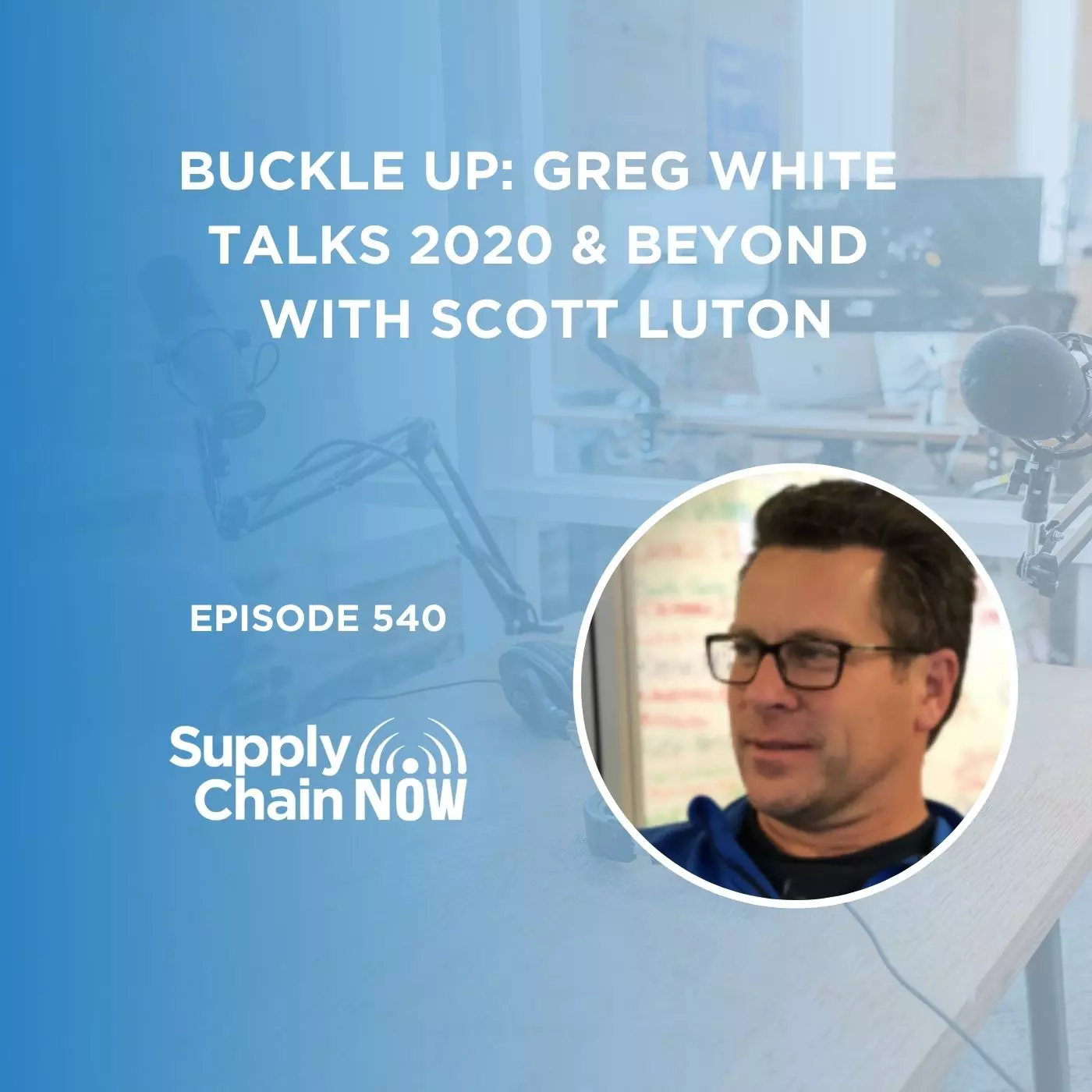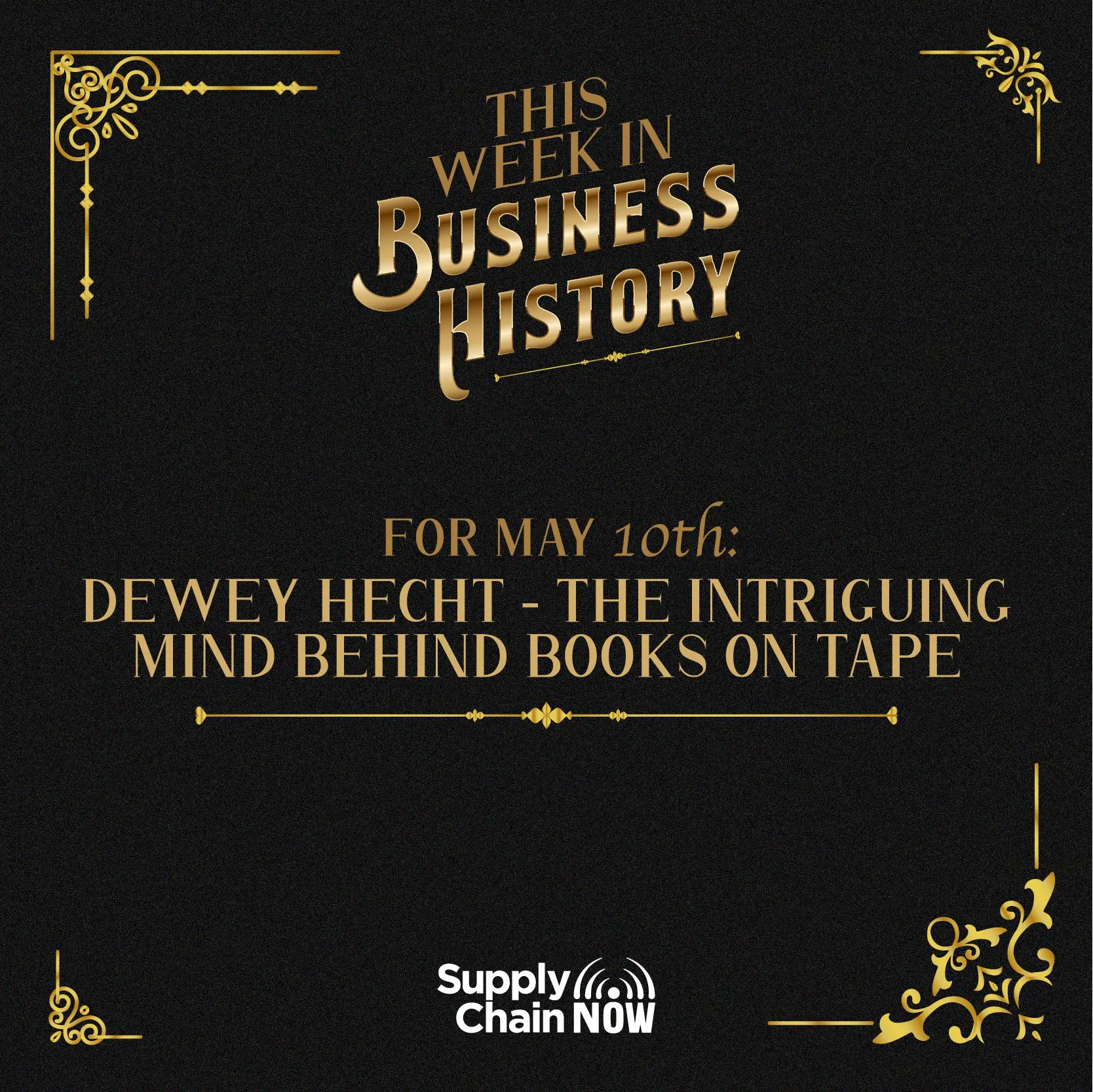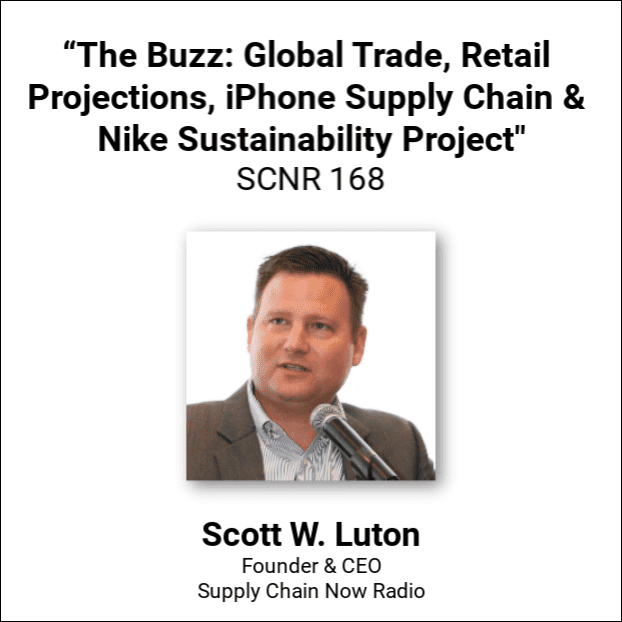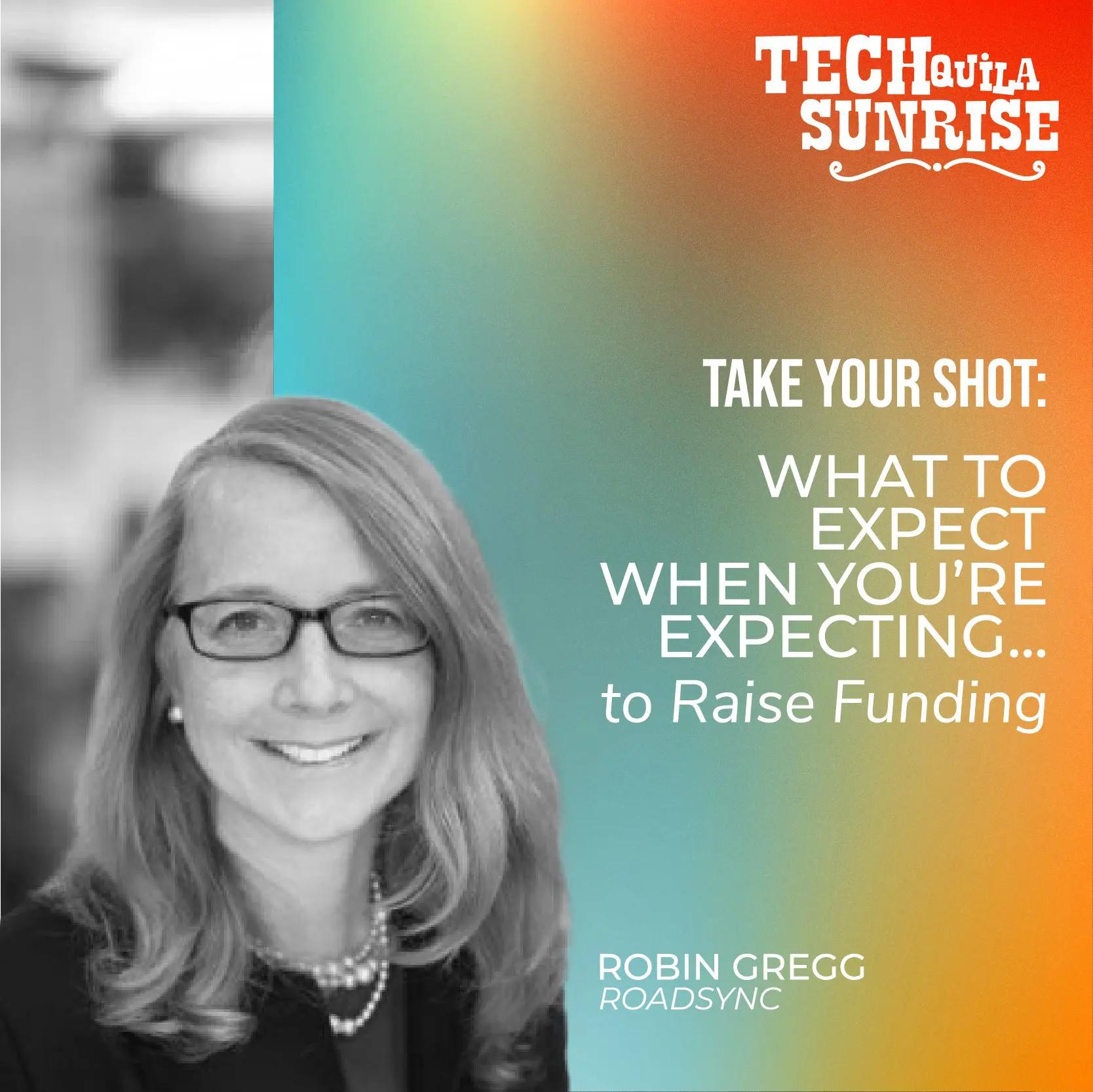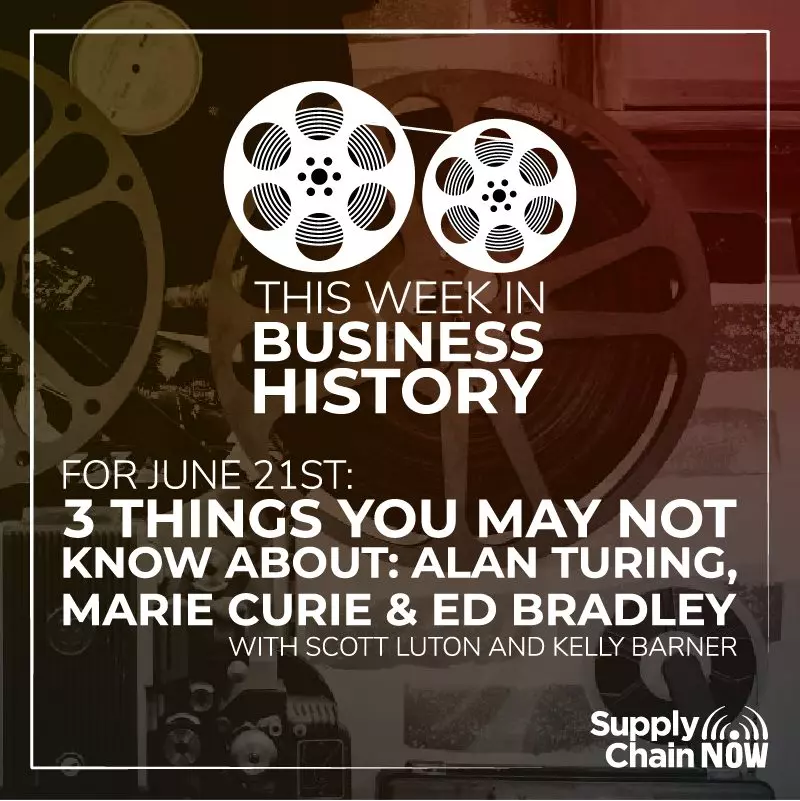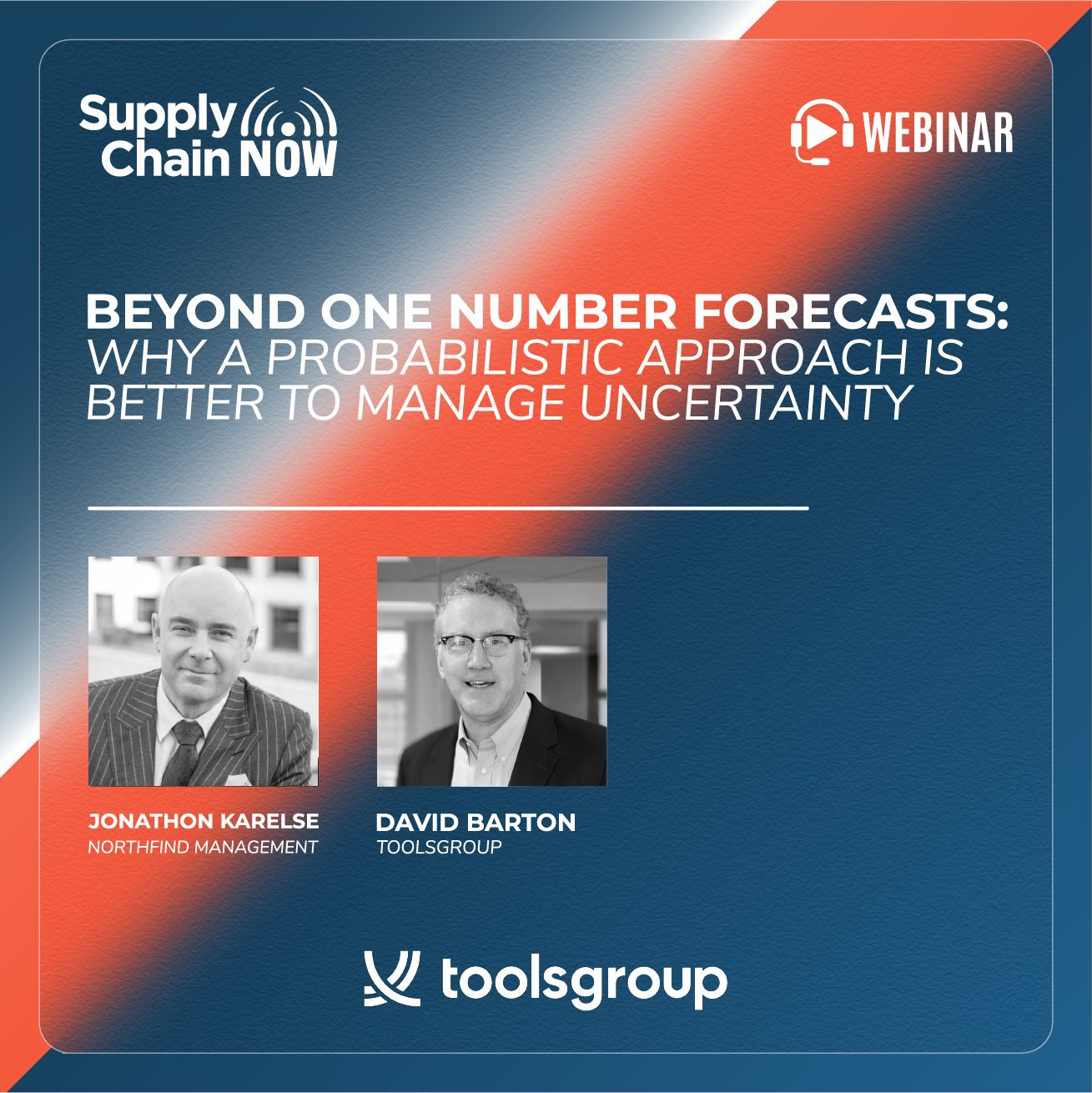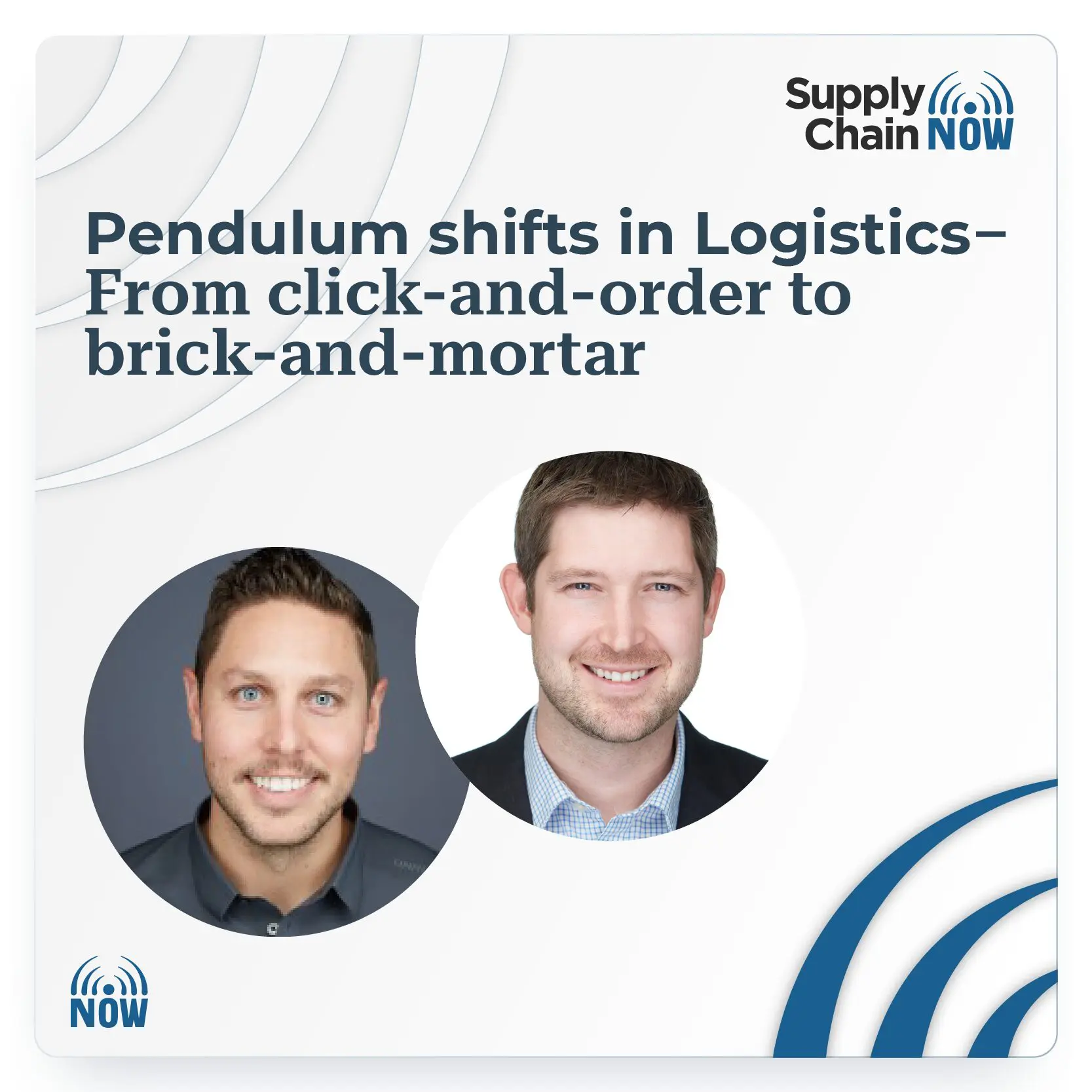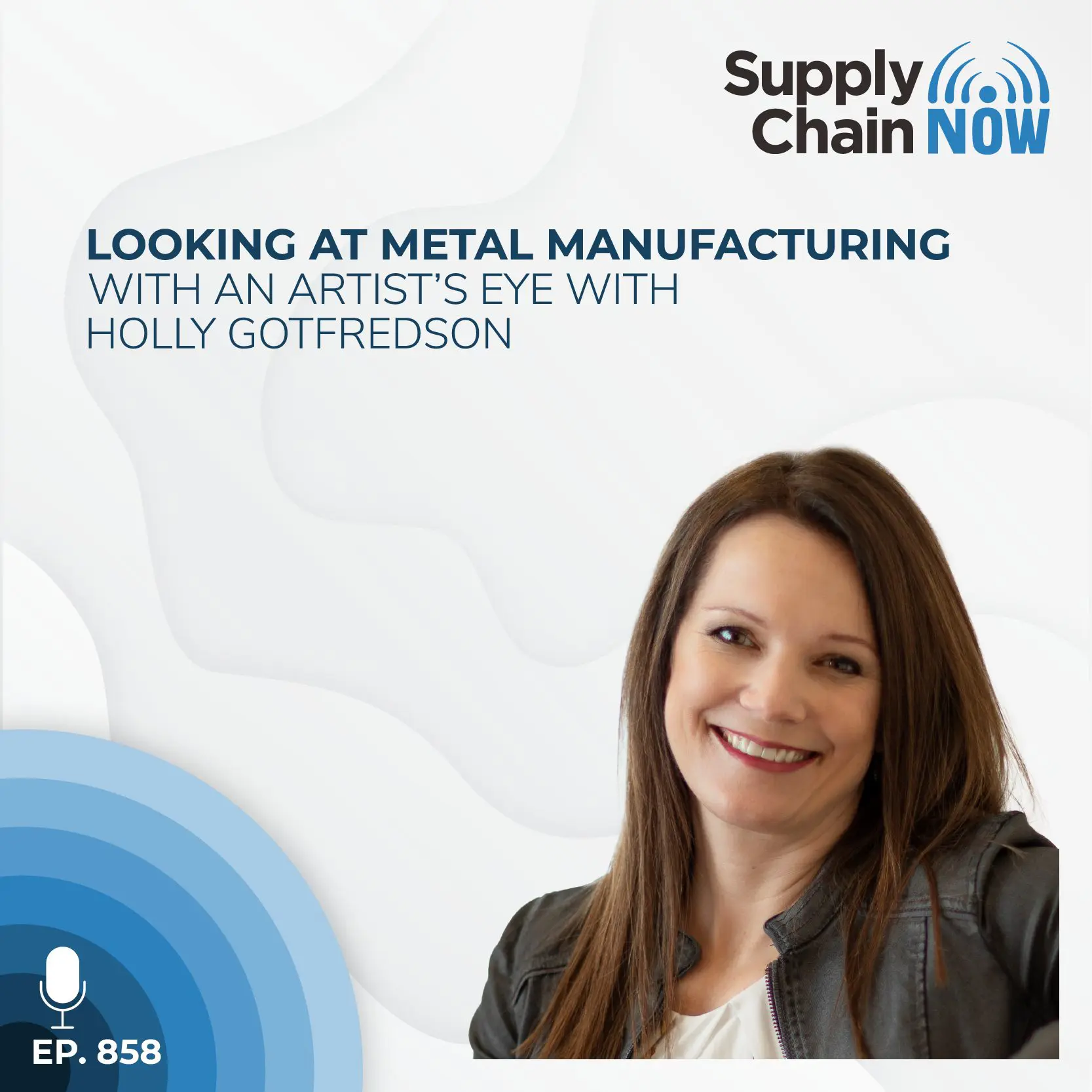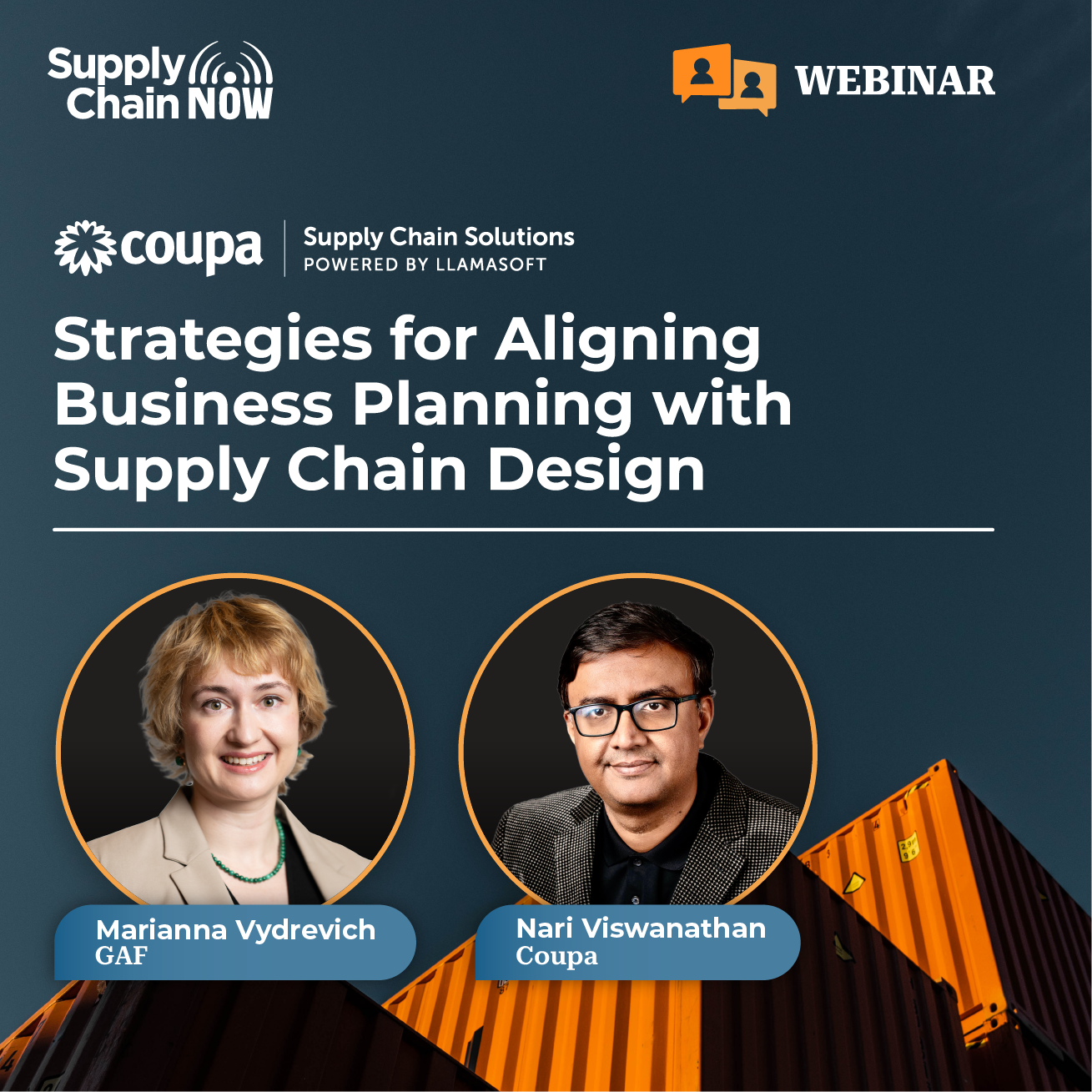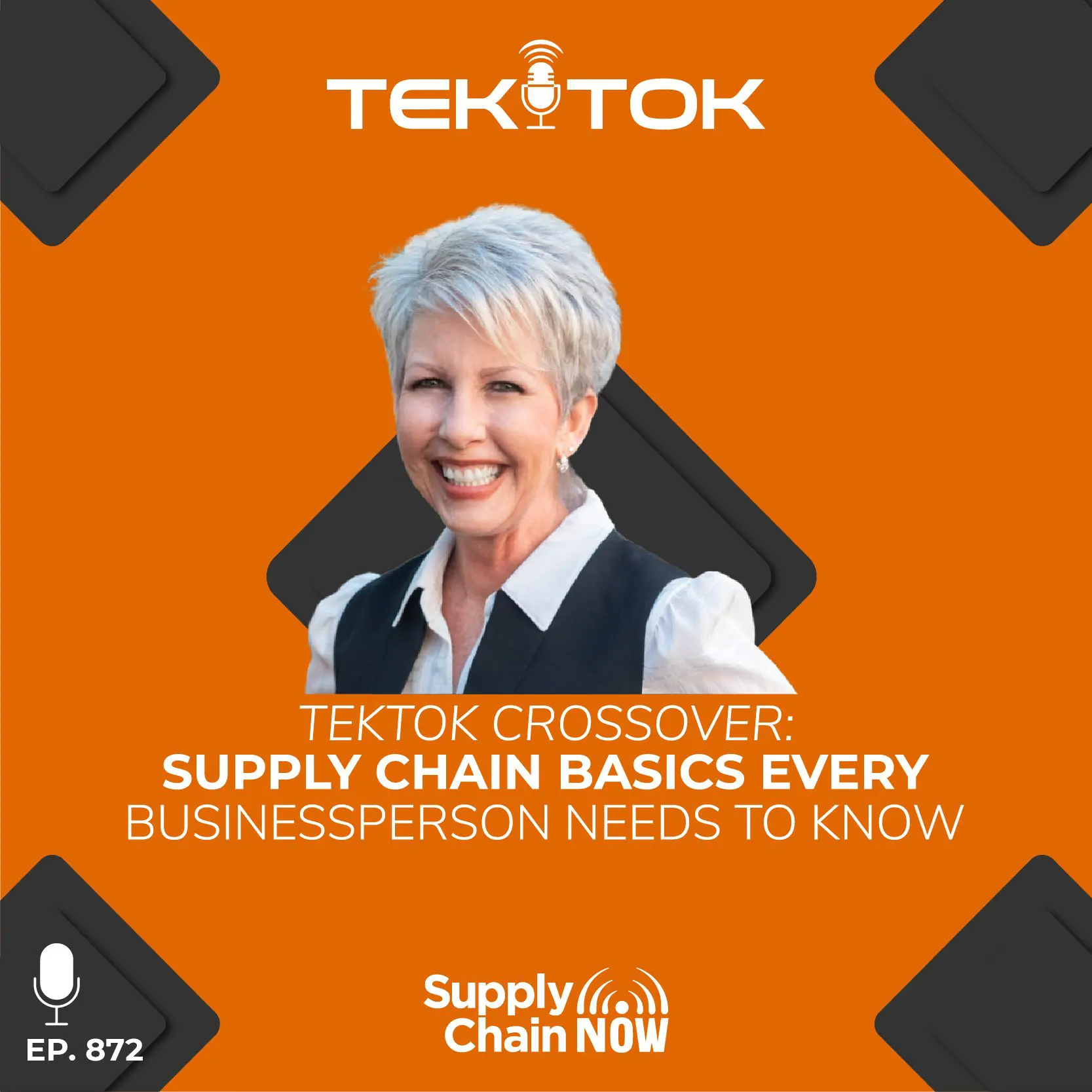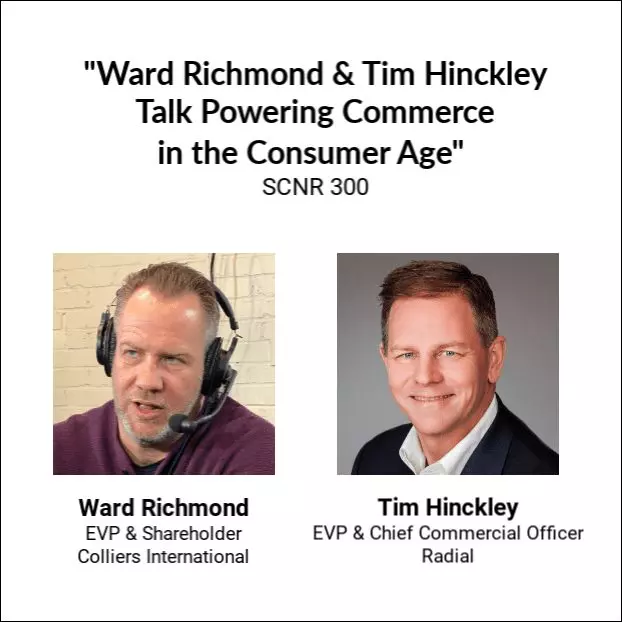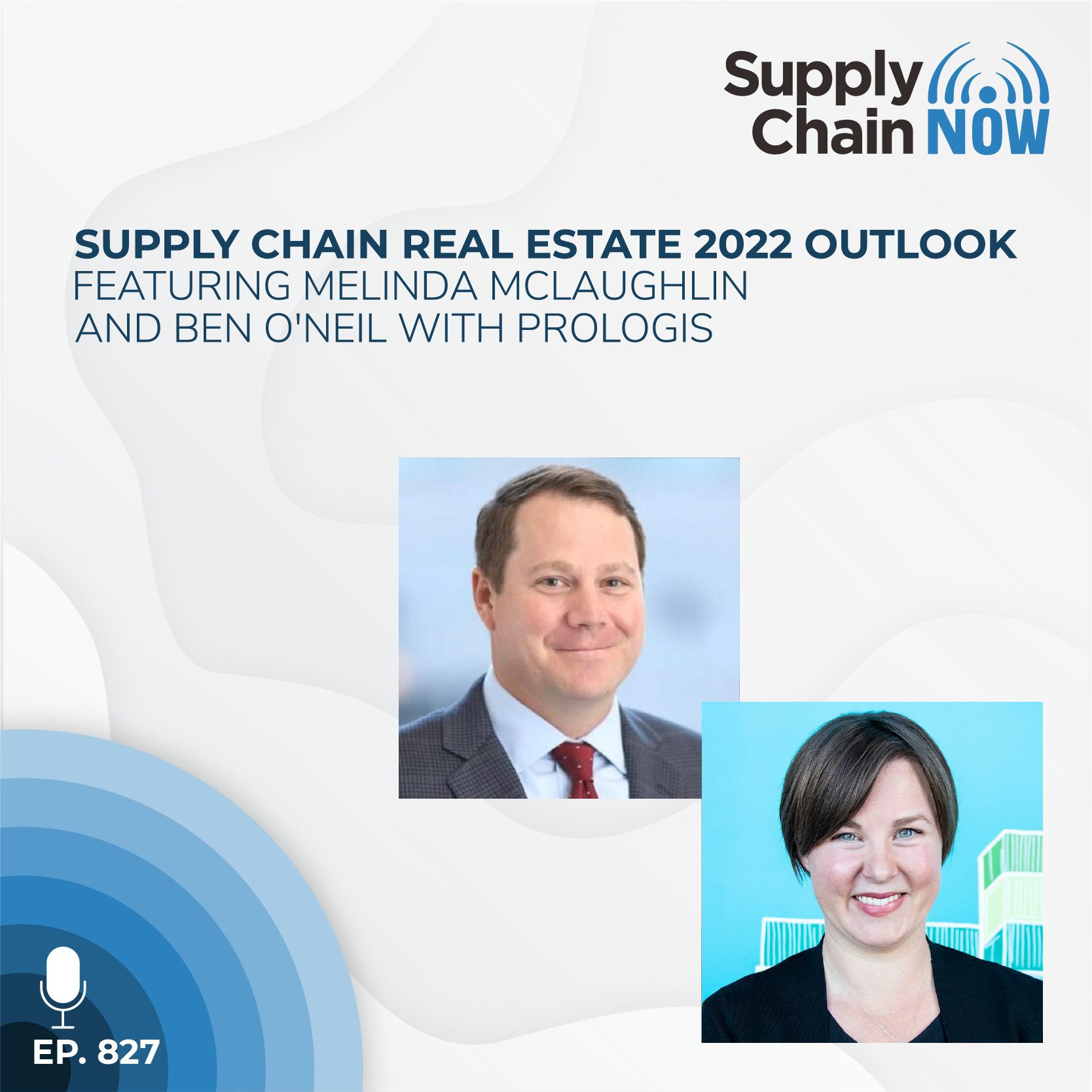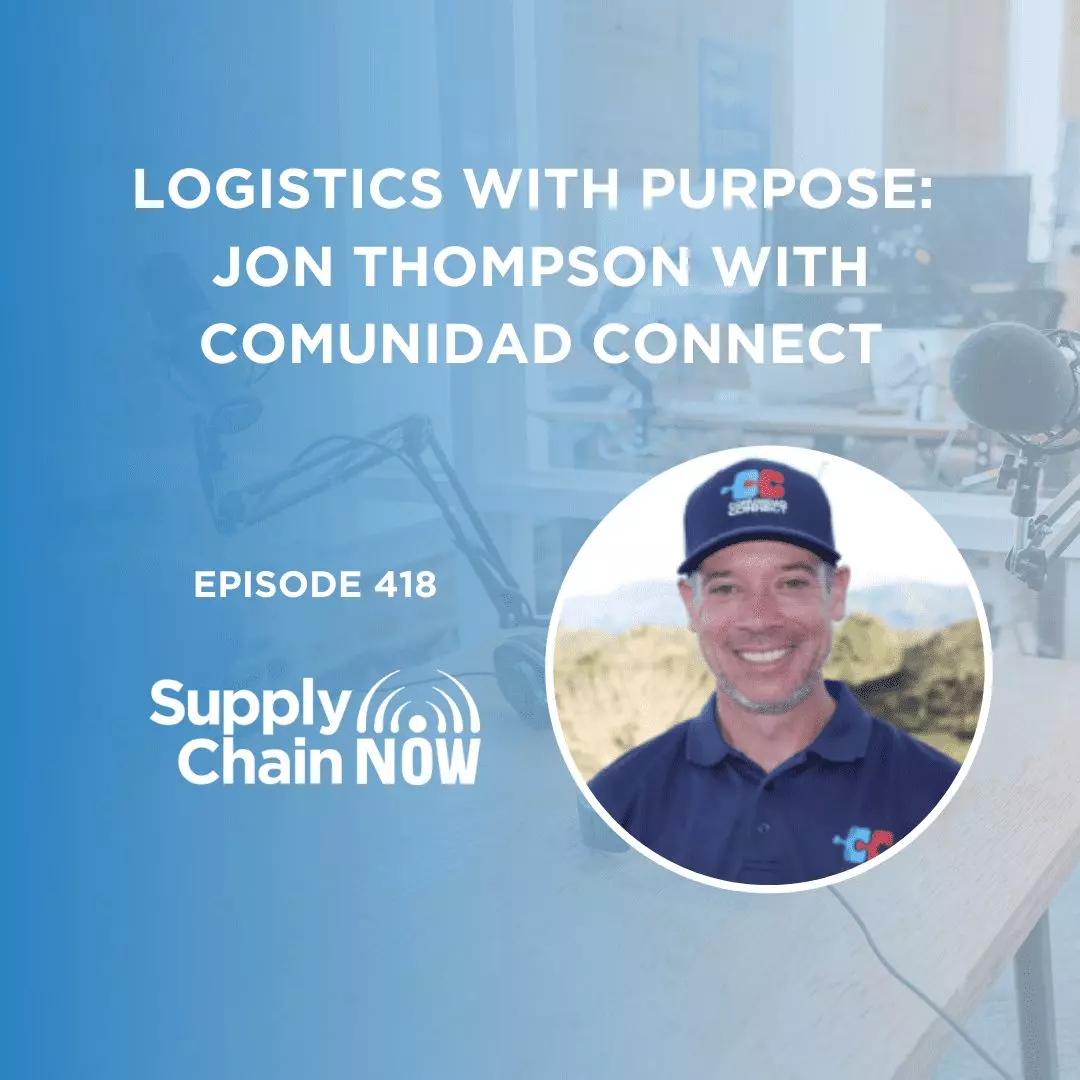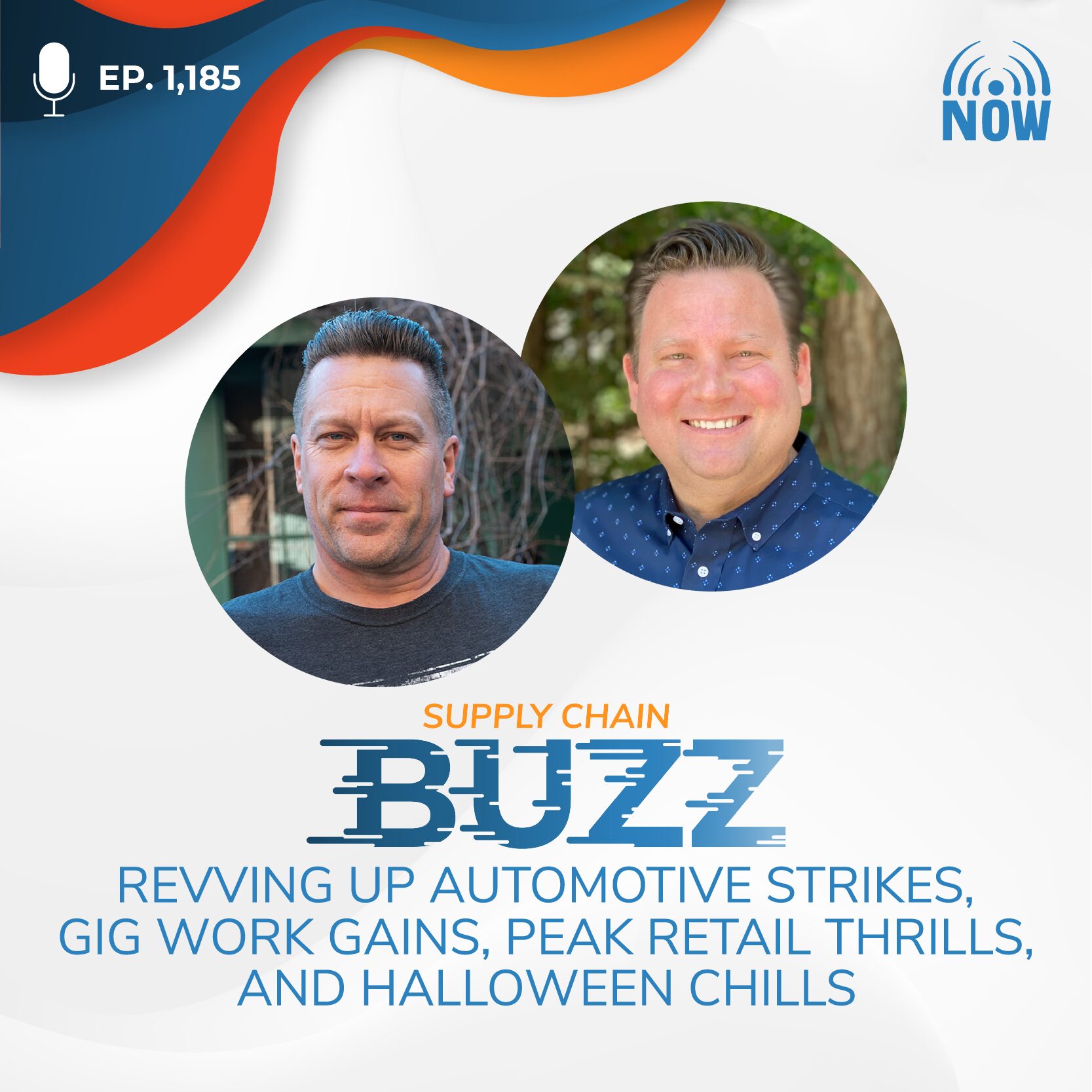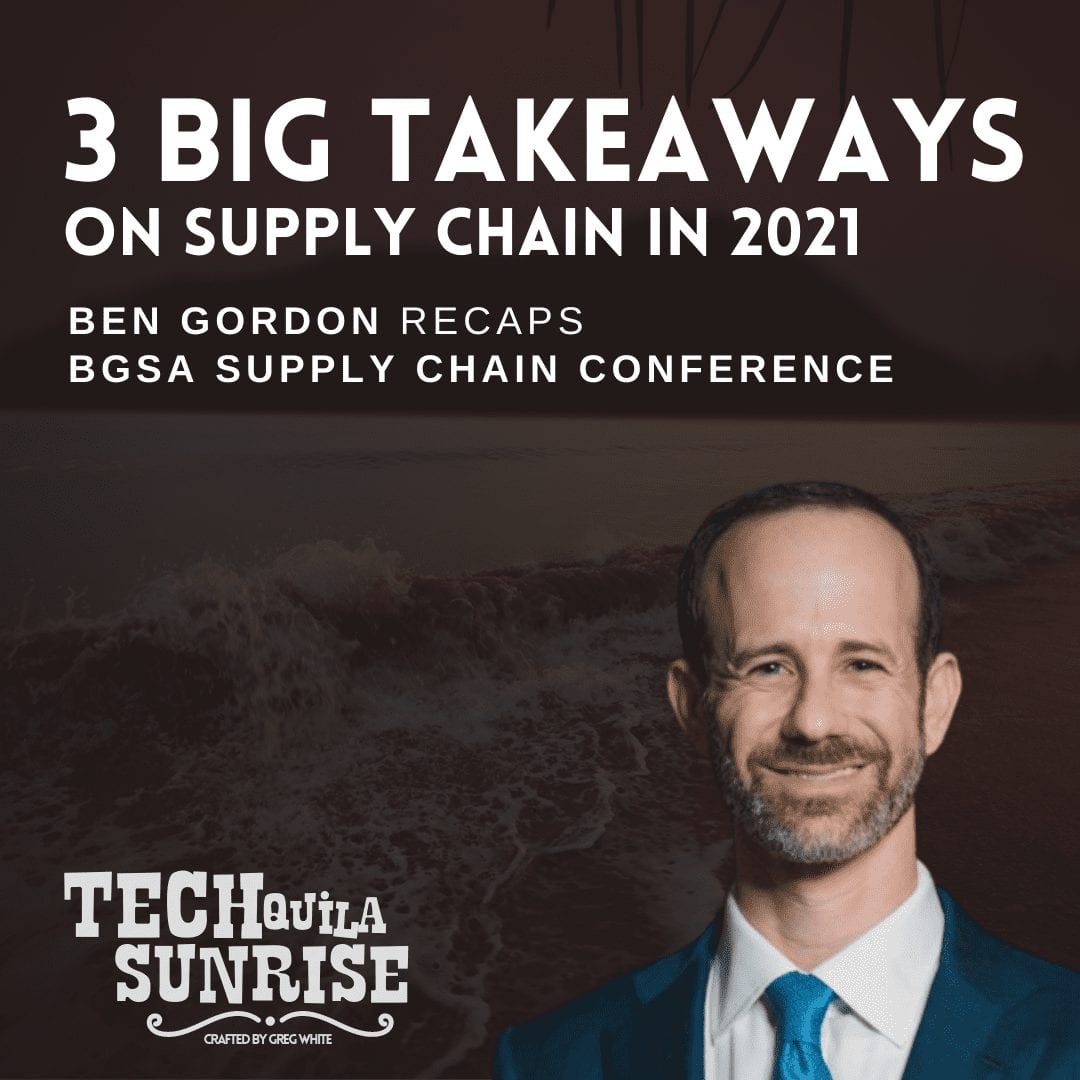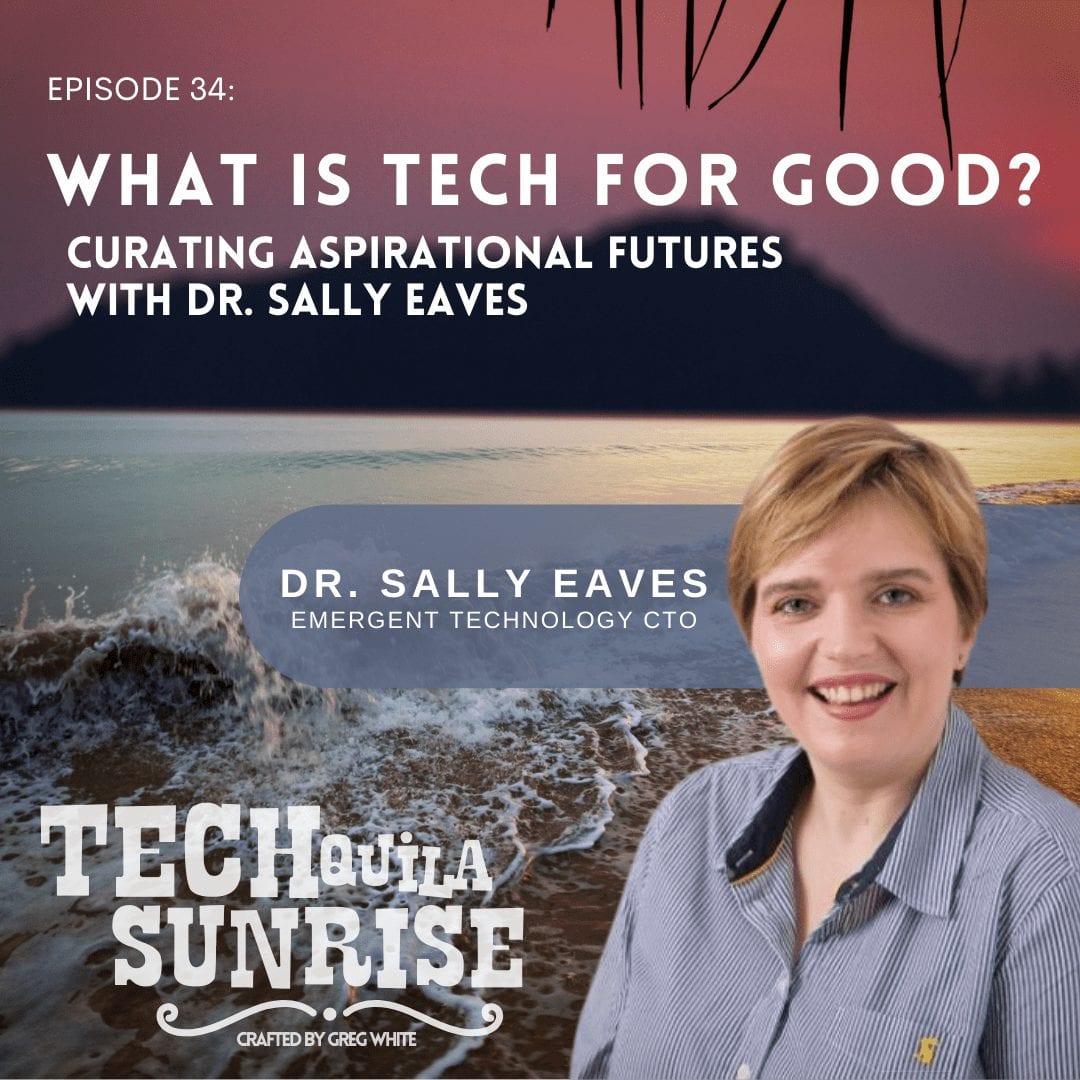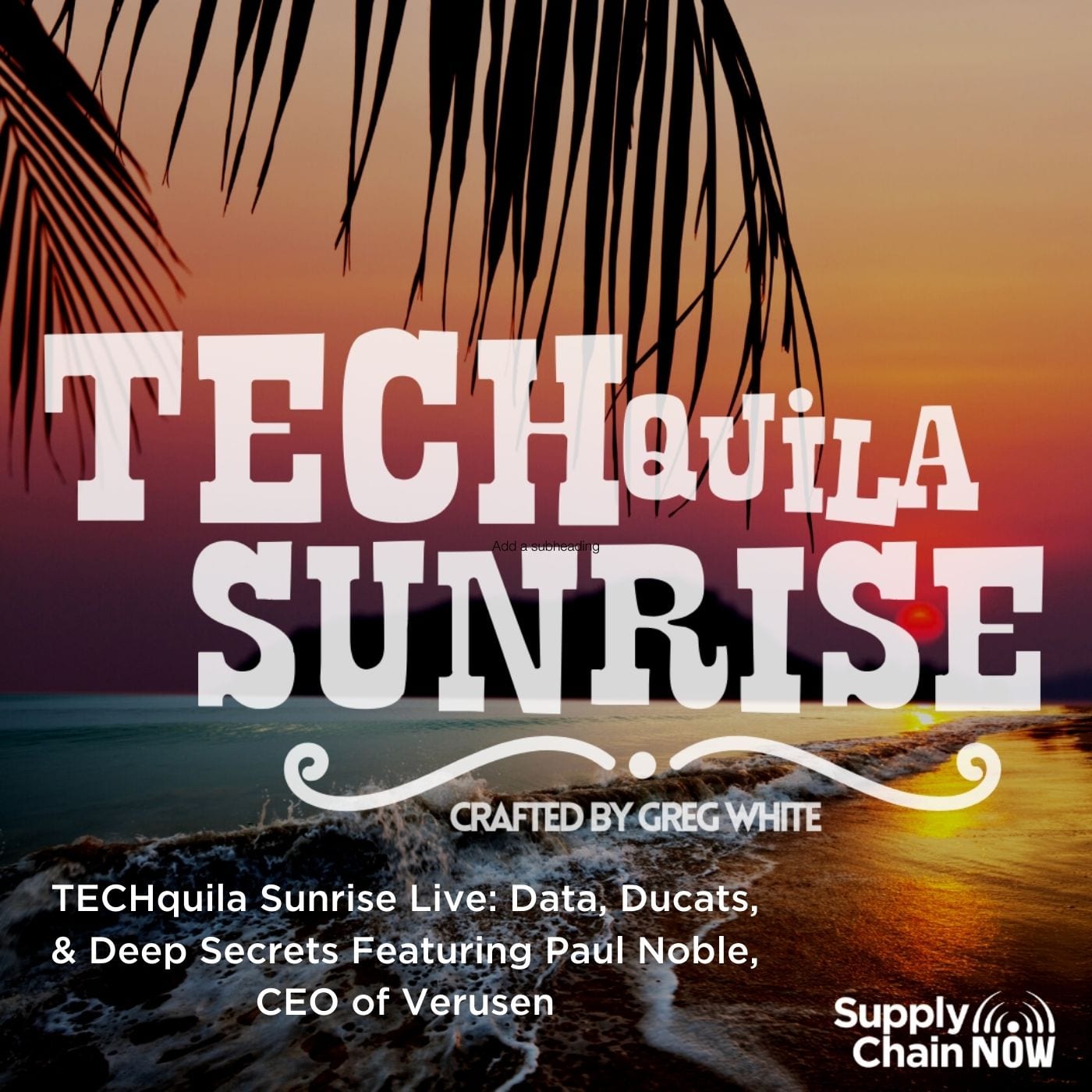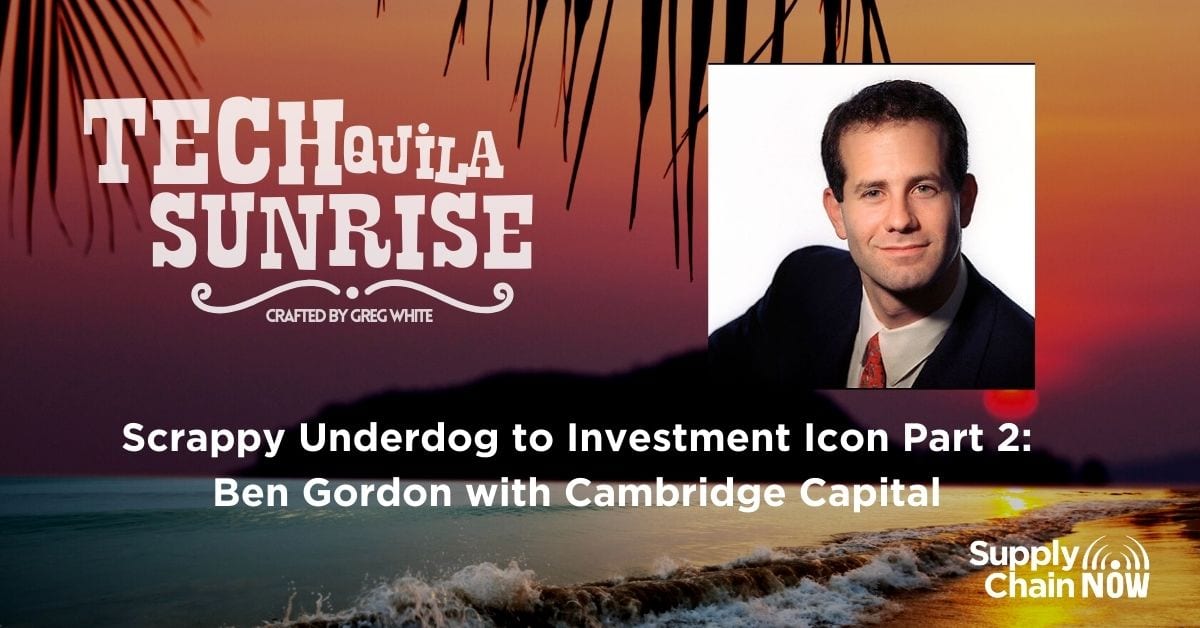
Episode Summary
“I think it was Emerson who said “a foolish consistency is the hobgoblin of little minds.” And I love that line because what does it tell you? It tells you that a foolish consistency, meaning I’m going to do it this way because that’s how other people do it. The hobgoblin of little minds is the mistake, the trap that people fall into. And it takes courage to think differently.”
-Ben Gordon, Managing Partner, Cambridge Capital
The ‘TECHquila Sunrise’ Series on Supply Chain Now shares the latest investments, acquisitions, innovations, and glorious implosions in Supply Chain Tech every week. If you are looking for a podcast about ‘so-and-so signed a contract with such and such,’ or ‘they just released version 20 of that same technology you didn’t buy last year,’ this is the wrong podcast for you. But if you are looking for real news and innovation, welcome to the Sunrise.
This episode of TECHquila Sunrise is the second part of Greg’s interview with Benjamin Gordon with Cambridge Capital.
Episode Transcript
Greg White (00:00):
This week on tequila, sunrise, we cast off the lines and sail to the wind, and you’re about to be blown away by the second half of Ben Gordon’s interview, learn how Ben Gordon brings value to the supply chain ecosystem, how he values companies and how he values the contributions of their founders. You can learn a lot from Ben. So listen up. It’s time to wake up to tequila. Sunrise we’re unfortunately, without the aid of tequila, we opened your eyes to how venture investing ticks focused on supply chain tech every single week, this unholy hour of the day. If you want a taste of how tech startup growth and investment is done, join me every week for another blinding tequila, sunrise, Greg white here from supply chain. Now I am always happy, never satisfied, willing to acknowledge reality, but refusing to be bound by it. My goal is to inform, enlighten and inspire you in your own supply chain tech journey. Hey, if you are listening on SoundCloud, you should know. You can only subscribe to tequila, sunrise on apps like Apple podcast, Spotify, Google podcasts, or others, and be notified when we pour out another shot, subscribe to tequila sunrise today. So you don’t miss a thing.
Greg White (01:45):
Here we go into the second half with Ben Gordon,
Ben Gordon (01:50):
Listen up, look, it’s good to be. It’s good to be smart. It’s better to be lucky. And we were lucky because, well, in 2010, a guy that a lot of people had never heard of in logistics showed up and his name was Brad Jacobs. And he said, Hey, you probably don’t know me, but I’ve done four roll-ups in other industries. And I’ve decided my next industry is going to be in logistics. And I hear you guys know a lot about logistics. Maybe you can help me. We ended up working together, helped them think through some of the opportunities from a strategy acquisition standpoint, and then ultimately put some money in with Brad in the formation of what would become XPO. And of course, Brad took a, a small platform called express one that was doing 10 million of EBITDA and grew it into it’s now about a $16 billion value public company.
Ben Gordon (02:41):
And so, and that, that represented a lot of the things that we look for a fantastic CEO, a high growth plan, a business that had had a motor at the Mo really was frankly, more about Brad and his strategy and the acquisitions, but also a very aggressive in technology. You know, he’s spending 400 million a year now in technology, but he’s got a $16 billion business, but what’s less obvious is at the time when he bought express one, he took it from 10 million of EBITDA down to cashflow negative because he put all this overhead in a lot of people thought that was crazy. Well, in hindsight, it wasn’t crazy at all. He was investing in the future by investing in technology and investing in people that would make it possible to build something much bigger. And so it said that success has a thousand fathers and a lot of people will claim that they were an important part of the success and the success was preordained and it was obvious. It was not obvious at the time.
Greg White (03:40):
Yeah. Well, and I know that you humbly say that you only played a small part there, but I think it was a pretty critical part. Also pre COVID just weeks or months before. And this is a Brad term that I have coined this seismic societal disruption. He was contemplating divesting that company because he felt like it wasn’t as valuable as it could be for the shareholders because the company was rolled up. The blend evaluations was actually less than some of those companies would have been valued if they were standalone or their own entity. Right. That’s right. That’s right. I mean, there is still incredible value in XPO.
Ben Gordon (04:20):
Well, I remain a shareholder today as I was nine years ago, so I I’m voting with my wallet. That’s right, exactly. Yeah. So for me, so that was how Cambridge started. XPO was a fantastic, uh, original investment. Um, another was a company called grand junction and grand junction was a company in eCommerce and last mile logistics technology, Rob Howard, who is the founder, great guy had sold his prior company in Senta to Transforce and was going to go do it again with a focus on the tech side, came to me and said, and this is always a great pitch. I don’t need money, but I’d love to have you involved and I’d love your help. And, you know, the, the premise was that he was going to use technology to help solve the last mile problem, which would be very valuable for retailers competing against Amazon.
Ben Gordon (05:14):
Also very valuable for logistics companies and Rob thought that maybe we could help with the strategy with access to potential customers, and then thoughts on who the eventual buyers would be and how to get there. You know, Rob was, was, was generous enough that he said, look, I’ll let you earn some equity in addition to whatever you buy, be my partner and help help me do this. And look, Rob’s the founder rubs the CEO, Rob deserves all the credit, but I played a little role in those areas. And we helped with, with, you know, thoughts in each of those elements and brought Rob Tory annual conference, which is something that Rob really wanted to be a part of. And it was great because, you know, we have 250 plus CEOs and leaders of chain companies that come to our, it’s an invitation only event. It’s at the breakers in Palm beach.
Ben Gordon (06:02):
It’s a, you know, CEO of one company calls it the Davos of logistics. That’s brilliant. Yeah. And, and so, um, so we brought Rob to the event. We introduced him to the CEOs and heads of logistics of a string of major companies, including XPO, Purolator, YRC, writing of others. People loved what he was doing. Uh, things took off and guess what, two years later target came in, they made an offer that we couldn’t refuse and the rods couldn’t refuse and we sold the business. And that was, that was 30 X. It was fantastic. But what’s important to note about that was it didn’t just happen. I mean, there was a tremendous amount of work and preparation. And again, Rob is the one who spearheads that. And Rob is the one who deserves the credit. And I will tell you that when, when Rob came to us and said, Hey, what do you think we should do?
Ben Gordon (06:53):
You know, Target’s made this offer. Um, what I said to Rob was look, you’ve built a great business. I think it’ll continue to grow. You’ll continue to succeed. And I believe the business will be worth more next year than it is right now. Having said that, I also think you’ve earned the right to get, to make that decision because you created this value. I didn’t create it. You’re the founder and CEO. And you know, that that’s a really important part of what I think the relationship should be with a founder. And if you are a founder first fund, as we are, you start by asking the question, well, who created this value and what does he or she think? And, you know, I asked Rob, I said, look, Rob, you know, there’s a lot of money on the table. Do you want to take this offer? And you know, Rob wanted to take it. And so we said, great, we support you. Let’s go make it happen. And that’s exactly what happened.
Greg White (07:44):
That’s an interesting story, not a, not a name, like some of the other names you’ve mentioned that everybody knows, but I recall when that transaction happened, because that was, that was a game changer, an overused term sort of like disrupted, but that was a game changer for target and their ability to deliver e-comm and it’s, it has continued to bring value to that organization. I’m curious, when I think about specialists in industries, it’s very rare. Are you the only growth equity, private equity firm that focuses solely on supply chain? Or are there others, or I know there are some who have supply chain in their, in their thesis, but do you know of others?
Ben Gordon (08:31):
I think we’re unique. I think there are other smart people that invest in logistics and supply chain. Most of them are generalists. They’re big funds that have a group for industrials and a group for healthcare and a group for energy, and then a group for transportation and logistics. Yes. What, um, as you alluded to earlier on, uh, most people don’t grow up dreaming of being in supply chain. And if you are at one of those large funds and you’re a rising star at that fund, you’re probably in healthcare or tech or some other area that’s not logistics that’s right. No offense to those people, but you know, the, the truth is, that’s just, that’s how it is. Those are, those are large markets and they’re growing markets and they’ve produced more billionaire, you know, investors and founders and people go where the money is. Right.
Ben Gordon (09:25):
So, uh, so there are lots of people who invest in supply chain. I believe we’re unique in being the only growth capital and bio for focused exclusively on supply chain. There are specialists again, there are, I mean, there are some venture firms that do predominantly supply chain, early stage, you know, particularly, um, as you know, and, and, uh, there’s a couple of obvious, but, but, but for growth capital and buyouts. Yeah. I think we’re unique. But I think where we’re really unique is the operational team that we have. So we have a set of operating partners and they’re people who’ve built fantastic companies. I mean, Reva’s capacity has built the ups strategic enterprise fund. You know, if he’s in Atlanta, ran R and D for ups, Dave Stubbs, who’s a partner, not just an operating partner, built the Coon inaugural lead logistics business, ISA all Sala who built agility logistics, and was someone that I was privileged to work closely with 16 years ago when we worked with agility on their MNA strategy and string of acquisitions, um, ISA built agility from really a tiny, uh, one country warehousing company to a $5 billion value public company, agility, um, you know, fantastic, right?
Ben Gordon (10:40):
So people like ISA remiss and Dave, because of their success building, you know, those examples multi hundred are multibillion dollar value businesses. They really understand supply chain. They’re really the stand, what it takes to scale. And that means that the entrepreneurs that we back into management, it seems that we support, they don’t just get money. They get real help. Yes. That’s a huge differentiator. I mean, I have to say that when I was building threeplex and my investors included all these big names, you know, no disrespect to Goldman Sachs Morgan Stanley bank, Boston and ventures, but the investors from those firms and those funds really didn’t understand supply chain. It really didn’t get involved in my business in a meaningful way. And, you know, I had an investor CNF ventures, which became Conway, which ironically is now part of XPO. And they didn’t even have a board seat because their investment was so small.
Ben Gordon (11:38):
I think they put in 500 grand out of the 28 million that we raised, but they had observer and they spend time helping me on the business and it made an impact. They’d be more like those guys in that I wanted to be able to really help our portfolio companies. And the best way to do that is with a team of partners, who’ve built major companies. So have I built a multibillion dollar company? No, but I’ve got partners that have, and having that access really, really makes a difference. So I think having the combination of strategy, technology, finance, and operational experience in supply chain, it really helps the portfolio companies
Greg White (12:19):
It does. And you know, you, and I know, but maybe our listeners don’t know that that is a common refrain we’re operators, right. And operators generally means generally operators. And for someone to have operators like remiss, right. Or like Dave or, or ISA who can actually contribute value to the business. That is a very, very rare thing. As, as I love to tell, you know, I’ve dealt with the occasional venture capitalist or PR or growth equity firm. Um, what I love to tell them is your differentiator is exactly like everyone else that I talked to, right, your operators, or you can help with the business or, or, or whatever, but in, in your case, I mean, the thing that I see is whether it is tech or whether it is physical asset based, or even non-asset based transportation and logistics, you have actual experience and actual people who can engage and really, really offer, uh, assistance to the organizations.
Greg White (13:20):
To me, that’s one of the values that I see when I, when I look at Cambridge in particular. Well, so let me, let me shift gears to the future a little bit, because you get to see a lot of what’s going on and on. And so everyone knows you don’t, as they can probably tell by these names, but I feel compelled to say this, you don’t invest only in supply chain tech. Obviously you invest in physical and nonphysical asset, or as you said, mode type organizations, but I’m interested particularly on the tech side, what are you seeing in the market now? What do you kind of expect into the future and what complexities or almost hidden issues do you, do you think we, you, you have eyes on, or, or we might discover in the near or distant future?
Ben Gordon (14:06):
Well, I think one huge theme is the growth of importance of last mile, as we’ve all entered into month six of, of work from home. And this, this COVID landscape, that’s reshaped everything, the rise of eCommerce and the rise of logistics that support C covers of course, as a macro theme, that, that is indisputable. It’s worth noting that in the first month after COVID the penetration rate of e-commerce was effectively equal to, I think, two years of, of increase in penetration prior to that,
Greg White (14:42):
Almost exactly that that’s right. 36%. And it was grown at about 18% previously. That’s right.
Ben Gordon (14:47):
Yeah. So, so it compressed a lot into a short period that that has several ripple effects. Okay. So one is growth in last mile. The e-commerce growth requires somebody to actually deliver the goods. So that hasn’t heard that, how about that? They don’t just show up magically. So it’s coming. Actually, if you look at patents, you’ll notice that companies like Walmart and Amazon, uh, are, are submitting patents for things like drone delivery of goods. And there there’s going to be more and more automation, but, but, but I digress, the primary point is one the growth in eCommerce to the resulting growth and supply chain to support e-commerce three. What that means for last mile services for last mile technology, uh, five eCommerce fulfillment, uh, six robotics in the warehouse, uh, seven drones, uh, for the actual delivery. And then eight, the opportunity is to use analytics to just improve and automate other elements of the supply chain.
Ben Gordon (15:50):
So all those things are happening. And so the first domino leads to all those others being knocked down. And so what does that mean? Well, first of all, growth and last mile, that’s why we’ve ended. Even companies like bring, bring has been a fantastic company, uh, it’s doubled or more than doubled every year. Since we first invested four years ago, we’ve continued to put more in, put in, you know, close to 20 million now and has done a fantastic job because they really understood that last mile was important. It was important for brands. It was important for companies that are worried about Amazon and worried about the growing market power and the fear that every brand has, which is that they are being reduced to a commodity that’s on Amazon that can be replaced by, you know, by, by somebody else. That’s, it’s a favored by Amazon or even an inhouse, you know, private label of Amazon.
Ben Gordon (16:46):
So, so last mile logistics and technology, the way bring, sees, sees it as a way for them brands to fight back and protect themselves. And so, and that’s something that we saw with grand junction and we know how valuable and powerful that is. And that’s something that we’re seeing, you know, drive success for, bring lift. It’s another example of that. It’s a company that’s using technology to help automate last mile, particularly in Latin America, which is where they’re based. And in major markets like Columbia, Brazil, Mexico, they’re, uh, they’re, they’re really emerging as a powerhouse, tremendous growth, you know, uh, over four X growth last year, and continuing to do a great job this year, fantastic entrepreneurial management team customers that seem to really love them again, they’re, they’re bringing automation to a market that’s increasingly important because of the rise of e-commerce and that, that, you know, fits that theme.
Ben Gordon (17:40):
Some of these other areas, eCommerce fulfillment interesting for me, threeplex 21 years ago, we actually had an initiative that we called the ship button, uh, which really was okay, what happens after you clicked buy it, then what? And we, we had, we had the right idea, but we’re trying to do too much at once. And as, as most entrepreneurs learn the hard way, uh, doing more than one thing, well, uh, usually means that you won’t do anything well. And so we did not succeed with the ship it button then, uh, but we see lots of companies today in the eCommerce fulfillment that are, that are succeeding in lots that are, that are interesting to us. And we haven’t picked one yet, but we will. Um, so I think that’s an important area of opportunity. Robotics look, robotics in the warehouse, uh, is an exciting area. It’s an area that has captured a fair amount of, of press, you know, just, just yesterday, there’s, there’s an announcement of, of a company that that’s launching exoskeletons, uh, for, for industrious
Greg White (18:45):
Iron man in the warehouse. I can’t wait for that. Right.
Ben Gordon (18:49):
Tony stark didn’t think he was going to be a warehouse operator, but, but you know what, that maybe, maybe that’s where the adoption will come. And, and what’s interesting about that is, um, exoskeletons originally were developed for the military as, as a way to, to, to give, uh, our troops a more protection and be more strength. Uh, so that look, I mean, if, if you could operate, you know, in the field of combat and run twice as fast as the other guys, or lift twice as much or jump twice as high, I mean, you know, there are all kinds of amazing advantages, but who would have thought that something is prosaic as lifting heavy boxes in a warehouse would prove to be, uh, an important area of adoption, but it is. And the reason it is self evident because as eCommerce fulfillment grows and as logistics becomes more important and as expensive warehouses continue to get built in major cities.
Ben Gordon (19:52):
Cause if you want that toothpaste delivered on a same day basis, and you’re living in Atlanta, guess what? It’s got to come from a warehouse in Atlanta, you can’t be fulfilling from somewhere 500 miles away and expect to be able to do same day. So that means that real estate is more expensive. Well, if the real estate is more expensive, uh, you gotta find a way to sweat the assets and create more productivity. So robotics and automation in the warehouse is one way to do that. Uh, so that’s, that’s coming, uh, you know, like I said, drones and area of, of application. So I think all these are examples of change that we see at the intersection of logistics, supply chain and technology. And those are what create opportunity that we’re excited about.
Greg White (20:34):
That’s really interesting because I think not to go back to COVID I have to, I’m sorry, I just did it. One of the things that COVID has brought to us is this recognition that at least in the short term, we’re going to have to exceptional spacing between human beings in a distribution center also because, because, uh, cleaning is so important and now there are robots that can clean off shift between shifts as well as help, help or conduct some of the work that humans have done in the past. And we’ve seen the model work with, you know, the usual suspect, Amazon who, uh, really pioneered that with the Kiva system that they bought. And we’ve seen some systems that are far more advanced than that hit the market since that time as well. So there is definitely a need, there’s definitely an opportunity. And now with the possibility of reassuring or near shoring, we can’t duplicate either in manufacturing or in distribution and possibly not even in retail, we can’t duplicate the size of workforce that China has.
Greg White (21:39):
If we want to have any hope of being able to reshore nearshore, that work, it’s going to have to be at a substantially lower cost than it takes to pay human beings to do that. So just my thought on that is robotics. They do the grunt work and humans do the more ethereal and exceptional work. And, and we elevate humans away from the repetitive, the mundane, the dangerous and other aspects that those robotics can take on. And it sort of elevates the entire supply chain as you know, supply chain is, is as much a mind function now as it is a physical function. So it’s, it’s an interesting transition. Those are great insights. I really appreciate that. So, all right. So let me shift gears a little bit. I want, uh, I want to get an idea from you for maybe some of our founders or execs or even other investors. What can they do better? Or if there were a couple of takeaways for our listeners, from what we’ve talked about at this point, what do you think are the most important takeaways for somebody who is either operating or investing or building technology for supply chain?
Ben Gordon (22:57):
Well, I think the number one takeaway is make sure you’re focusing on solving an important problem. You know, I I’ve, I’ve looked at a lot of companies where they’ve got smart people and they’re working really hard, but they’re just not solving the most important problem. And you know what, you’re going to do the work to figure something out. You might as well do it in an area where if you’re right, the upside is much bigger. So solve a big problem. Think about the big themes, like the growth in eCommerce and the logistics that supports it, or the growing importance of cross border or the growing importance of consolidation or convergence of multiple services. Like these are all big themes. And if you get the big themes, right, and then make sure that you’re solving a big problem or a big need that, that dovetails with and supports that great.
Ben Gordon (23:46):
I mean, that’s, so I think to me, number one, solve a big problem. Number two is make sure everybody in your organization knows what’s the metric that matters most. I’ve seen this a lot too. Look, if you’re looking at a logistics company and there are a lot of logistics companies today that are masquerading as tech companies and they think, Oh, well, I should be worth the revenue multiple, because that’s what these other tech companies are. If you’re a logistics, six company, you’re not going to be valued on a revenue multiple years valued on EBITDA. So if that’s what you are own, it embrace it, focus on maximizing EBITDA. On the other hand, you know, if you are a SAS, uh, recurring revenue, you know, software company, great, you’re going to get measured as a multiple of, of, of your SAS revenue and the higher that you could almost think of it as a scatterplot, you know, where the X axis is, the SAS revenue, the Y axis is the growth rate.
Ben Gordon (24:40):
And, and based on where you are in the scatterplot, it tells you where to be. So just know what’s the metric that matters what you’re focused on. It’s not just a numbers issue. It’s also a strategy issue, right. But know what to focus on. Um, number three is don’t be penny wise and pound foolish. You know, it was interesting. I’ve seen lots of companies where venture backed is different, but if you’re a founder led company and you have it, and in institutional money, maybe you’ve got options for your management team. Maybe you don’t, you can unlock tremendous there’s value when you provide that additional equity upside for your team. By the way, an interesting deal that was in the news yesterday, uh, the Nicola, uh, motor business, which just announced a partnership with a $2 billion investment for GM, uh, and they’re public. And you know that the stock is skyrocketing and the founder, uh, by the way, who, uh, Trevor Milton who’s, who, uh, was awarded a million shares as executive chair.
Ben Gordon (25:41):
He just decided today to give all million of those shares to his employee base of 350 employees. Okay. Now your reaction to that is, wow, exactly. Now, listen, Trevor Milton is going to make a lot of money. He’s going to do fine. This is not isn’t that kind of, you know, send him into bankruptcy. But what it did was it allowed him to give a large portion of equity in the form of options to a management team, you know, to share in the upside. You might, you might say that was awfully generous of him. You might also say it was actually, as Warren buffet would say very longterm greedy of him, because if those options have, maybe I don’t know what the terms are, but let’s say they have a four or five year vesting period. And those employees work extra hard cause they’re extra motivated. Cause they’ve got all this upside. And as a result over the next four or five years, the business grows even faster. Trevor Milton is going to do great as a result of, so it amazes me how many companies that don’t have institutional money in them. Don’t create a broader shareholder base. And you know, this is a classic example of a wind wind. So, so, you know, be willing to do that, be willing to share, be willing to think about the long term upside that
Greg White (27:01):
I think that’s a really important part. That’s really important for people to think about now. I don’t know how common that is in, in, in the physical asset side, the mode side of the business, but from a tech standpoint, I would think that that’s table stakes for someone to have that. I mean, if for you to get the best of the best to work at your company, they have to have some incentives, some skin in the game, some opportunity for upside along with you. Right. I think everybody millionaires at least right. Is not, that’s not a bad policy, um, or, you know, as close as you can get them reasonably. Right? Yeah.
Ben Gordon (27:39):
Yeah. And so when we invest, if, if the company doesn’t already have a, you know, a, a generous option plan for management, we make sure that that’s the case, you know, post investment because it’s longterm in everybody’s interest for that to be the case shared, shared success. And, and again, it comes back to what does it mean to be a founder friendly fund? It means making sure that you’re doing the things that help the management team win and win together.
Greg White (28:06):
I gotta say, if anything has stood out from, for me from this, this interview so far, it’s your philosophies are there. They are truly beneficial to the companies and the founders that you invest with. Because if these things aren’t known, there are certainly things that they should, they should know and they should hear, and they should hear from investors and that’s not necessarily common. So, all right. So as we kind of wind this down, there’s a couple of other questions I would love to have you share answers to, with our, with our, uh, our audience. And one is, I want to make sure that whatever you think our listeners ought to take away from this, they get to take away from this. So if there is one or two things that, that you want the listeners to take away from hearing about your journey or your philosophies, what, what are those
Ben Gordon (29:00):
Well, look, I think number one is don’t give up sometimes when you’re building something as a founder, uh, you get the door slammed in your face a lot. I remember when I started threeplex we went and took a trip to Silicon Valley. We went down Sandhill road, calling on the venture capital firms and we were rejected by all of them. And we were not only rejected by those guys, but, but humiliated, in one case in particular, I was pulling out of the parking lot of Sequoia and I got sideswiped by a woman at a Mercedes station wagon. And, and I just remember thinking, like I couldn’t, I just couldn’t process. I’m about to be late for my meeting with Kleiner Perkins, because some woman’s sideswipes me and, and we’re exchanging insurance information and it turns out that her last name is fires. And I’m thinking, wait a second.
Ben Gordon (30:01):
Um, I hope she doesn’t hear this interview. Uh, I realized that I’m about to be late to go pitch Kleiner, Perkins, Caufield, and Byers Byers. Yes. So, uh, sure enough, the wife of, of the name partner, you know, Brook Byers is, is the woman with whom I’m exchanging insurance information. And, uh, I’m just thinking like this is bad karma, everything about this. And so I ended up, uh, and, um, you know, dressed up because it’s, it’s, uh, this is 20 years ago and you’re still supposed to dress up for pinch meetings, right. So I’ve got my suit jacket on and I’m on the ground under the car, pulling the metal off the tire because otherwise the, the tire isn’t going to spin and I’m covered in grease, I’m disheveled, agitated. I show up late for the pitch meeting, you know, it went as about you would expect, which was terribly, right.
Ben Gordon (30:54):
So I had a lot of whiffs. Okay. But finally I found an investor that was excited. And then the next one, the next one. And it’s funny how it is, you know, when you’re losing, you know, everything goes badly. And then all of a sudden one win and it’s just here, it’s the mindset that changes. And the next three I’ll submit a term sheets. And I, you know, I wasn’t, I don’t think I was as dumb as I felt I was that we can Silicon Valley. And I don’t think I was as smart as I felt that week when we got our first term sheet and then everything else fell on, you know, in rapid succession behind that. And so to me, takeaway number one is don’t give up if you have an idea and, and it’s a good idea. I mean, look, you can take this too far, right?
Ben Gordon (31:39):
I mean, you have a bad idea. You shouldn’t just ignore the market feedback, but if you have a good idea and you know that the elements of, of, of what you have, uh, make sense, don’t give up, keep fighting. You know, you may have to pivot, you may have to adapt. You may have to make certain changes, but find a way to get through it. To me, that’s that’s number one. Number two is don’t be afraid to take feedback. Don’t be afraid to listen and make significant changes, you know, for us, you know, I mean, look, threeplex started out, uh, as an exchange for shippers, what are the many dumb things that I did that I was at least able to recognize was the original name for the company was going to be shippers exchange. Well, if you put those words on the screen right now, what everybody will notice is it appears to say not shippers exchange, but shipper sex change.
Ben Gordon (32:34):
So this was not what we had anticipated clearly, but you know what? You look at it and you go, gee, that was probably a stupid idea. Let’s change the name. We’re going to be execution software for three PLS. Let’s call it threeplex. And, and I’m not saying that was the world’s greatest brand. Literally it wasn’t, but the point is don’t be afraid to make changes. Don’t be afraid to adapt. Don’t be afraid to recognize it’s a sign of strength, not a weakness. When, when you realize that your first idea wasn’t as good as your second idea. And so, you know, again, that could be taken too far. You shouldn’t be creating whiplash for your team by making massive changes every day. But, you know, don’t, don’t be afraid to rethink your assumptions and change your mind when you find a good reason to do so.
Ben Gordon (33:19):
And the third thing is I’ve seen this so many times where people argue about the wrong things and know what matters. I mean, you and I were talking about this earlier in the discussion where, you know, sometimes a company thinks the right thing to do is sell and run an auction and that’s it. And maybe that’s the right thing to do, but you know what, sometimes, uh, having a partner for growth ultimately leads to you’re making more money. We’d coyote have built 1.8 billion of value if they didn’t have Warburg come in. I don’t think so. Uh, and even though Jeff silver sold a big equity stake in the business to do so, I think Jeff was, was better off as a result, but there are lots of entrepreneurs in that position that would say, Nope, not going to do that deal because I’m focused on control.
Ben Gordon (34:05):
Well, maybe that isn’t the right thing to optimize for. Maybe if you have the opportunity to grow even faster with the right partner, maybe it’s more important to ask how do I get the right partner rather than how do I negotiate? You know, the, the, the nickels dimes or even dollars when, when there’s something much more important at stake. And I realized that could be sounds, self-serving coming from a guy who’s an investor who wants to pay a fair price, not a crazy price, but it has the added virtue of being true, which is in the end, the big decisions, you know, can make a money. If, if Brad Jacobs, for example, had optimized for buying the cheapest company he could buy, right. He maybe he would’ve bought a trucking company for three times EBITDA instead of an asset light logistics company for eight times EBIT. And maybe as a result, instead of building a $16 billion company, he would have built a $1 billion company still would have done very well. Right. But I think I know where, where I would have rather been. And I think it does too. So focus on the big stuff and make sure that you’re spending your energy, uh, on, on the, the thing that matters most, as opposed to getting bogged down in what might be in front of you, but maybe isn’t as important.
Greg White (35:20):
Those are great pieces of advice. And I, I agree with you on every one of those points. And of course there are dozens more that that are meaningful, but those are really important. And I think really represent the discussion we’ve had here today. First of all, don’t give up, um, don’t get too hung up on whether you’re right or wrong either. Right. And lastly, a good partner is worth every penny. I mean, if you break it down into its simplest concepts, all right. So one final thing. Is there anything that we should have talked about that you think the audience should know or, um, you know, just any kind of parting shot that you want to, you want to impart wisdom or knowledge or an anecdote, a sea story, uh, to the audience?
Ben Gordon (36:12):
Yeah, I think was, I think it was Emerson who said a foolish consistency is the hobgoblin of little minds. And I love that line because what does it tell you? It tells you that a foolish consistency, meaning I’m going to do it this way because that’s how other people do it. The hobgoblin of little minds is the mistake, the trap that people fall into. And it takes courage to think differently and to think bigger, but all the people that we celebrate as a, as an American society, you know, and Steve jobs had his ad campaign titled think different, right. And, you know, Einstein and, and I mean, people who question the traditional assumptions, uh, and, and ended up coming up with a radically different answer as a result, you know, like that’s not just a, those are just words in a, in a poem or, or words in a commercial that, that really is what makes all the difference. You brought up Fred Smith earlier, um, and Fred Smith fallen prey to the foolish consistency. That’s the hobgoblin of little minds. He would not have started FedEx. You would not have, he would have, you know, maybe he would have just gone and taken a job with, with another large company that was doing everything the way, all the other, you know, companies of its type, where, I mean the trucking industry and to work for the post office. Yeah, exactly.
Greg White (37:38):
That was really the sort of concept that he rebelled against in that, in that thesis. Right.
Ben Gordon (37:44):
Exactly. Think of how much better our world is because Fred Smith didn’t go and take a job in the post office, but wrote a business plan that his teacher thought was terrible, that he ended up building into an amazing success. Um, and so that has so many different ripple effects. One, if you are an entrepreneur, you have an idea. Don’t just do something that others are doing because that’s what others are doing too, is an investor. Don’t just invest in an area as, as a me two and three. If you are a founder looking for a capital partner, don’t just say, Oh, I’m going to go with X because X is a big brand. Well, in the end, you’re not taking money from a brand. You’re taking money from a person who’s going to be on your board. And you want that person to be someone that understands your business in ways that you don’t and cause otherwise why do it, they should bring something that helps you.
Ben Gordon (38:40):
Um, and that’s going to do something material that wouldn’t otherwise make an impact on the business, and it’s going to care about it. And the, the lazy answer, the, the foolish consistency in the deal world is, well, I’m just going to go, uh, do a deal with such and such some large firms because sort of the, the deal equivalent of nobody ever got fired for choosing IBM. Right? Well, but the truth of the matter is, and take it from me. There were a lot of great brands out there, and I’ve had several of them as investors and as partners, but what mattered the most in the end, wasn’t the brand. It was the person on the other side of the deal. And if, if he or she was smarter than me and able to help me in material areas and committed to the success of, of the business, that’s what made all the difference.
Ben Gordon (39:27):
Now that’s really the, the DNA for us as a firm, right? I mean, we all could have got enjoined, you know, some other large firm, large brand. Um, but it isn’t what we wanted to do. We wanted to build a business, helping great entrepreneurs achieve great things. And we also wanted to give them the courage to be more aggressive and to bring them the resources, to help them thrive and to help them succeed. And so my, my advice to those entrepreneurs who might be listening is don’t be seduced by brand focus on what’s the real value add, and who’s the real person on the other side of the table and what is he or she really going to do to help. And that’s the right question to ask. And if you ask that question, you’ll inevitably end up with a better outcome.
Greg White (40:12):
Wow that’s so that is so valuable. Trust your own judgment also on whether that person adds value. Of course, everyone is going to say that they can add value, but as a founder, as an executive, you know what you need, and you need to extract whether that value exists in that person, in that firm representative of that firm for you, because what you mentioned earlier, the complimentary gifts of that person who can shore you up on the finance side, if you’re more of a sales person or whatever that is, you need to recognize that first in yourself as an entrepreneur. And then you need to seek that out as counsel, you know, w you know, one of the things that I think is critical for founders is mentorship and complimentary gifts, great wisdom as usual. Usually I can really wrap these things up with a kind of a summary, but I feel like you’ve hit so much of it.
Greg White (41:13):
Ben, I really appreciate it. So thank you for joining us. Um, I know I’ll see you elsewhere, but thank you for joining us on tequila, sunrise. I know the audience has gotten a lot out of this. I really, really think this exemplifies why we need specialists, particularly in banking and particularly in investing supply chain, it is so different, and I’m glad that you’re doing it, and I hope the best for you and your firm. And I know you’ve got more deals in, in your pocket that you can’t tell us about. So keep us informed, uh, real quick, how can folks connect with you
Ben Gordon (41:52):
So they can reach me@benatcambridgecapital.com. And that’s probably the easiest and most direct way Amman, LinkedIn handle is Ben Gordon 18, and I’m on Twitter handle is Benjamin H. Gordon. And I respond to most of my emails within 24 hours or less. So it’s pretty impressive. Yeah. I, you know, it’s a figure it’s, it’s Steve jobs once said, he noticed that when he reached out to CEOs, he got a response within 10 minutes, um, VPs within two hours and, you know, associates within a day. And he asked the question, you know, what is it that they got to that position? Because they were responsive or they had the luxury of being responsive because they were in that position, that position, I don’t know which it is, but, but, you know, I think, I think you can, you can go crazy with that. I mean, there are days when you get 400 emails, but, uh, uh, but anyhow, I’m, I’m, I’m responsive on email and, and feel free to reach out.
Greg White (42:54):
Thank you again, Ben Gordon with Cambridge capital and BGSA Ben Gordon, strategic advisors, founder, managing partner, and you’ve heard it here from the master. So I really appreciate the time. Thank you, Ben. And just be aware, Ben is a growth equity and private equity investor. So if you just started a company, feel free to reach out to me. I’ll get you to the right people. All right. Thanks. Thanks a ton, man. I appreciate it. Hey, my pleasure. Great being with you as always. Thanks for sharing your time with me and Ben. All right. That’s all you need to know about supply chain tech for this week. Don’t forget to get to supply chain now, radio.com for more supply chain now, series interviews and events. And now we have two live streams per week. The most popular live show in supply chain, supply chain buzz every Monday at noon Eastern time with Scott Luton, the master and me, plus our Thursday live stream to be named later where we bring you whatever the hell we want. Like a few weeks ago, when we interviewed our producer clay, the DOE Phillips, thanks for spending your valuable time with me and remember acknowledge reality, but never be bound by it.
Featured Guests

Ben Gordon draws on a career spent building supply chain and technology companies. As CEO of BGSA Holdings, Benjamin led the firm’s efforts, advising on over $1 billion worth of supply chain transactions. Benjamin has worked with firms such as UPS, DHL, Kuehne & Nagel, Agility Logistics, NFI Logistics, GENCO, Nations Express, Raytrans, Echo Global, Dixie, Wilpak, and others. Prior to BGSA Holdings, Ben founded 3PLex, the Internet solution enabling third-party logistics companies to automate their business. Benjamin raised $28 million from blue-chip investors including Morgan Stanley, Goldman Sachs, BancBoston Ventures, CNF, and Ionian. 3PLex was then purchased by Maersk. Prior to 3PLex, Benjamin advised transportation and logistics clients at Mercer Management Consulting. Prior to Mercer, Benjamin worked in his family’s transportation business, AMI, where he helped the company expand its logistics operations. Benjamin is an active civic leader who is committed to giving back to the community. As founder and chairman of GesherCity, he boosted young adult volunteerism, expanding the organization to over 100,000 members in twenty locations. Benjamin has also served on the Boards of several non-profit groups, including the Palm Beach United Way, the Palm Beach Federation, the Palm Beach Young Presidents’ Organization (YPO), the JDC, the JCCA, the Middle East Forum, and various other community organizations. Benjamin received a Masters in Business Administration from Harvard Business School and a Bachelor of Arts degree from Yale College.
